





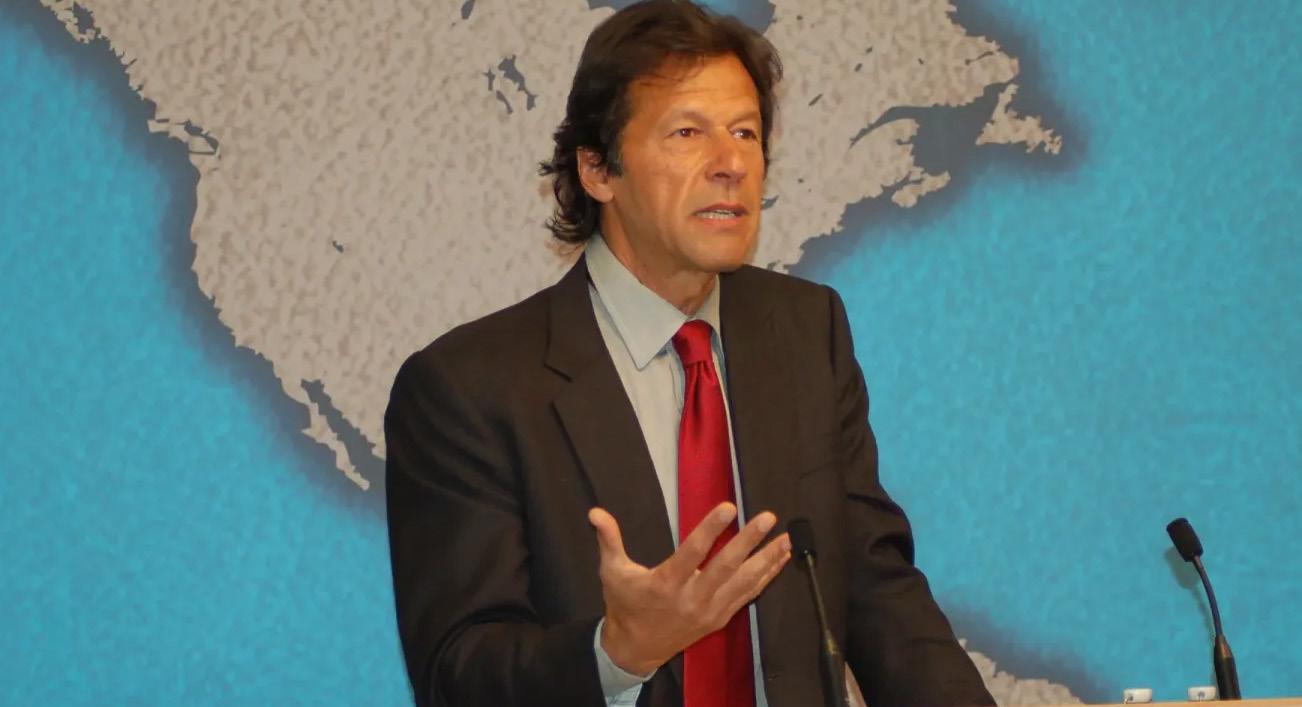
reason”
The list of Candidates running to be Oxford Chancellor was released this morning by the University. Despite announcing his candidacy on 18 August from jail, Imran Khan’s name was not present on the list.
Applications for Chancellor, the position of “titular head of the University” were considered by the Chancellor’s Election Committee “solely on the four exclusion criteria,” the University announcement reads.
Asked about the disqualification, Syed Bukhari, Khan’s aide, said to The Oxford Student: “I think its extremely disappointing and Oxford University has definitely missed the trick here. Imran Khan is the
voice of many people around the world and his popularity shows through the petition signed by students, alumni and faculty and there was absolutely no legal reason to disqualify him, so its extremely, extremely disappointing.”
“ There was absolutely no legal reason to disqualify him, so its extremely disappointing — Remarks by Khan’s aide
On the University’s reasons for exclusion and whether they might apply, he said: “It’s a grey area so it’s a matter of interpretation. We considered
many KCs, barristers and solicitors prior to applying, and our interpretation of the law is that he is absolutely eligible.” Burkhari, stated on X that his lawyers have contacted the University about the reasons for the disqualification.
The four exclusion criteria are:
a) the Chancellor cannot be a student of the University;
b) the Chancellor cannot be an employee of the University;
c) the Chancellor cannot be a serving member of, or a declared candidate for election to, an elected legislature; and d) the Chancellor must not be disqualified from being a charity trustee by virtue of section 178 of the Charities Act 2011 and and must be a “fit and proper person”.
Khan is neither a student of the University nor an employee...
Continued on page 4

On the night of Sunday 13th October, Palestine Action sprayed the University Offices with paint and damaged the ground floor windows.
The main entrance of the Wellington Square building was sprayed with red paint and the front door appears to have been smashed. By 5 PM today, much of the paint had been removed but the glass entrance remains blocked off.
Palestine Action have said this was done to “symbolise Palestinian bloodshed”, stat-
ing that the University “is an investor in Israel’s biggest weapons producer, Elbit Systems” and “maintains close ties to Israel by investing in similarly destructive companies”.
Palestine Action are a national protest group who describe their aim as “harnessing the strength of the grassroots and directing it towards bringing down Israel’s war machine”. They have previously targeted Barclays Bank and damaged factories linked to Israeli defence and technology company, Elbit Systems.
Continued on page 4
On July 5th Keir Starmer had just won a landslide, taking over from the most incompetent administration in living memory, and outside Downing Street he made his first speech as Prime Minister. “My government will serve you,” he promised the country.
Yet in a hundred days of office, he has succeeded in pleasing nobody and antagonising ev-
erybody. He possesses a suicidal mania for choosing policies calculated to upset as many people as possible. Means-testing the winter fuel payment guaranteed a quarrel with both left and right – one side was outraged by his attack on the vulnerable, the other by his attack on their voter base. Imposing VAT on private schools undermined the worst-off private-school pupils – by pushing costs further into the...
Continued on page 10
A picture from outside Downing Street. Credit: Garry Knight
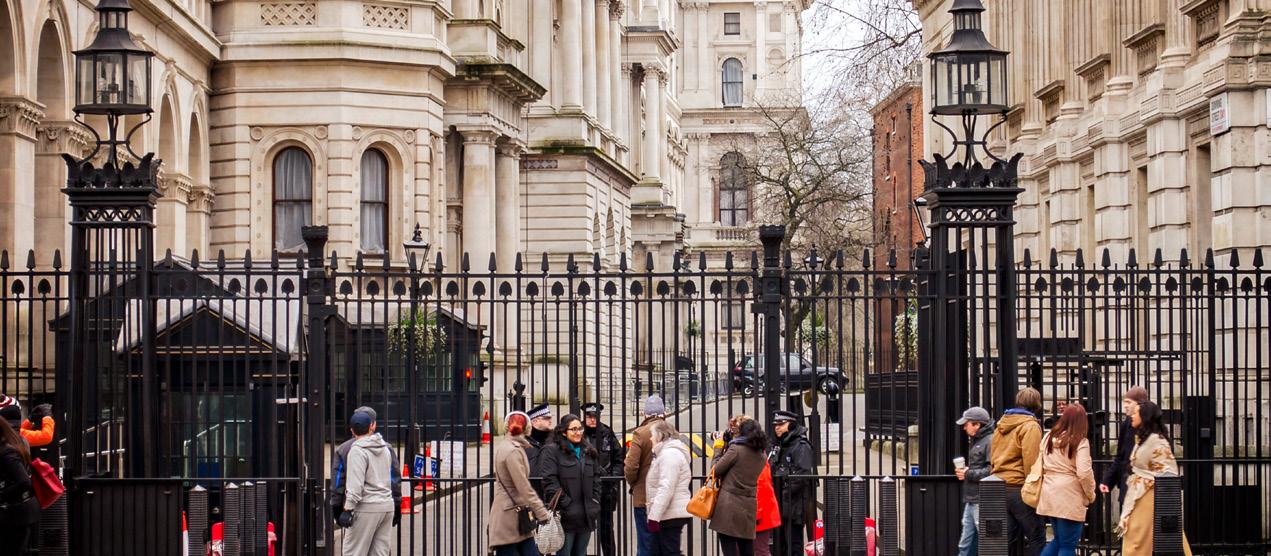

Scan this code to receive weekly top stories and more!
Comment
Starmerism: 100 days in power
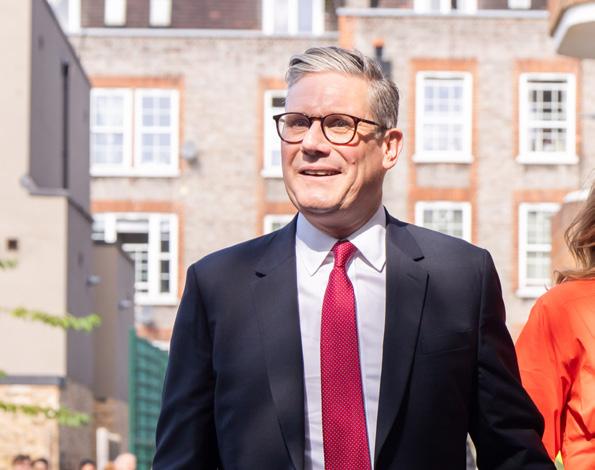
Profile
In conversation William Hague
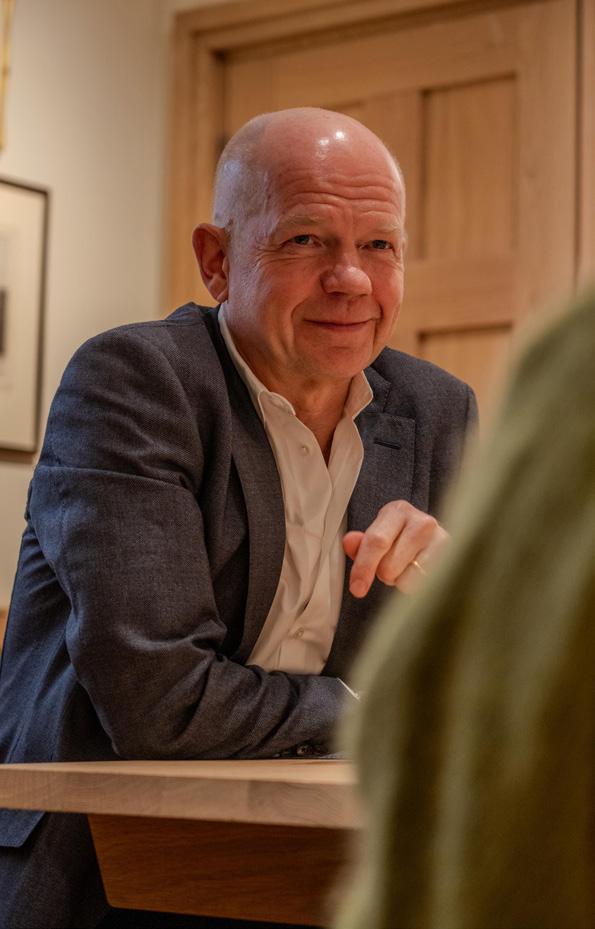
Navigating Oxford as an introvert


Set to a backdrop of Chancellor elections, Palestine protests and a particularly vicious strain of freshers flu OxStu is once again in print. I am thrilled to return as Editor-in-Chief alongside Amelia, for a Michaelmas term that promises to be one to remember.
Having started my career in student journalism a little over a year ago, I have been fortunate to work with a great team who have been there for the highs and lows of producing a student paper. This print has shown their dedication, coming to the rescue at all hours of the night with their wealth of expertise. Tara, Charlie, Martin and (all the way from Germany over video

To be honest, I never saw myself as a student journalist, but three terms in, here I am. I’ve always enjoyed writing about politics, but The OxStu not only offered me a platform, it gave me a
Editorial Board
Georgie Allan and Amelia Gibbins (Editors-in-Chief)
Johannes Riese and Sabine ZednikHammonds (Associate Editors)
Martin Alfonsin Larsen and Gaspard Rouffin (Directors of Strategy)
News and Investigations
Anandita Abraham and Cameron
Samuel Keys (Heads of News)
Zohaa Butt, Caitlin Clarke, Canqi Li, Yunzhang Liang, Devika Marshal, Yashas Ramakrishnan, Gaspard Rouffin (Section Editors)
Comment
Yusuf Kungdol (Deputy Editor)
call) Gaspard, I cannot thank you enough.
This is an exciting term for OxStu as we go international, introducing our new Postcards from Abroad segment, which features pieces from students on their year abroad discussing life away from Oxford. We are also more accessible than ever, moving to a rolling application format, allowing students to apply to join at any time and train as part of our award winning team.
To everyone I’ve had the fortune to work with in the past year, thank you for all that you have taught me and for tolerating my 3am insomnia fuelled work sprints. Nothing could have prepared me better for the modern world of work than these wonderful teams, temperamental software and endless inboxes. To everyone neither involved nor interested in student journalism, I’m sorry.
supportive space that challenged me to become a clearer thinker and better writer. I loved reading and editing articles last term as Comment Editor, and arguing with my contributors over the finer details of their pieces, until one of us gave in.
Thank you to my Editor-in-Chiefs from last term, Martin and Gaspard, for always helping me with my endless InDesign questions, and finalising my layouts when my images somehow got cropped. To the new team, I look for-
Emma Heagney, Rufus Jones, Ned Preston, Mariyah Saddique, Natasha Tinsley (Section Editors)
Max Thomas (Legal Correspondent)
Profile
Ananya Parakh (Deputy Editor)
Vivi Lei, Yashas Ramakrishnan, Mariyah Saddique (Section Editors)
Features
Faith Caswell (Deputy Editor)
Nicole Gibbons, Sophie Harrison, Emma Heagney, Nayana Juliette Syed, Natasha Tinsley (Section Editors)
Betsy Fricker, Rohan Kaya (Columnists)

This time last year, when I applied to be a section editor as a fresher, I would have never expected that I would be Editor-in-Chief now. After being Deputy Editor last term, when Martin encouraged me to apply for Editor-in-Chief, I was honestly surprised, but flattered nevertheless.
In Michaelmas last year, I wrote a grand total of one article for the paper, but somehow managed to stick around. My journalistic career picked up in Hilary when I decided to put pen to paper, writing a few articles for Comment, Culture and Features. It was then that I was thankfully promoted to be Deputy Editor for Features - probably the best decision I
ward to an eventful term with our Editors-in-Chiefs, Amelia and Georgie, guiding us as pillars of wisdom, wit, and weirdness.
As Associate Editor, I’ll be in charge of the weekly newsletter, sent out every Monday— hopefully, I won’t spam your inboxes and make you regret subscribing! It will cover everything from the latest news to the best pieces from each section. So, whatever you’re interested in, long-distance break-ups or the latest DNA discovery we’ve got you cov-
Culture
Eleanor Grant (Deputy Editor)
Nicole Gibbons, Sophie Harrison, Rufus Jones, Nayana Juliette Syed (Section Editors)
Shilpi Nanda (Columnist)
OxYou
Seth Saupin (Deputy Editor)
Jan Maciejewski, Lara Murrani (Section Editors)
Lara Murrani (Columnist)
Identity
Sami Jalil (Deputy Editor)
Willow Lock, Lucy Pollock (Section Editors)
Will McCaffery, Sharon Chau (Columnist)
have made at Oxford so far. Now, as Editor-in-Chief, most of my time is consumed by this newspaper, but I would never wish for anything elsegetting to work with an amazing team and having the opportunity to meet the likes of William Hague.
I would like to thank Martin and Gaspard for all their help over the vacation - we couldn’t have done this without you and appreciate all your hard work. I would also like to thank Charlie for saving the day at lay-in - your InDesign expertise was much needed.
I’m immensely grateful to Sabine and Johannes for their time spent on the newsletter and social media, and Cameron and Anandita for your incredible News work over the summer - I am continually impressed by you both. I am so excited for the term and cannot wait to see what it brings!
ered.
Finally, to the freshers, I wish to impart some hard-earned wisdom for term. Oxford is a wonderfully brilliant, quirky, yet also overwhelming and stressful place, so take care of yourselves and don’t prioritise your academics above all else. I can’t remember a single reading I did last October, but I do remember and treasure all the moments I shared with my coursemates.
Johannes Riese St Antony’s College
Sport
Johannes Riese (Deputy Editor)
Zohaa Butt, Caitlin Clarke, Ned Preston (Section Editors)
Haris Book, Gaspard Rouffin (Correspondents)
Science
Sabine Zednik-Hammonds (Deputy Editor)
Yunzhang Liang, Devika Marshal (Section Editors)
Bob Sira (Columnist)
Creative
Rhea Kaur (Creative Director)
Amelia Woon, Caroline Kuba, Liv White, Mia Leahy (Illustrators)
Miranda Devine, Lloyd Dore-Green (Puzzles)
news@oxfordstudent.com | Heads of News: Anandita Abraham and Cameron Samuel Keys Section Editors: Zohaa Butt, Caitlin Clarke, Canqi Li, Yunzhang Liang, Devika Marshal, Gaspard Rouffin

On the morning of Friday 11th October, at 6:30 am, multiple committee members of the Oxford Majlis Society were targeted with discriminatory messages through the society’s Instagram account, after it had been hacked.
According to the President of the society, Anoud Naeem, the hackers were, “someone trying to stop [The Oxford Majlis] from going forward with the events planned for this term.” The messages included hateful speech and slurs: “Can you P*** f*** pls leave us alone?”, “how are ur jihad plans going btw?”, and “who made you president? can you even speak English.”
The Oxford Majlis is a debating society founded in 1896 by South Asian students. It has not been consistently active at the University and was revived in 2023. Its last notable presence before that was in 2016. Former members include anti-imperial independence figures and former Prime Ministers like Liaquat Ali Khan, Solomon Bandaranaike, and Indira Gandhi. Naeem, speaking to The Oxford Student, said that there had been a notification of a new login to the account
around two weeks ago. Naeem said this was not flagged as an immediate issue due to the number of people who already had access to the account. It was not until a later Freedom of Information request that the logins were traced to IP addresses registered in Wembley and Manchester, with one IP address recognisably connected to a VPN.
“ Hackers... sent racist, sexist, Islamophobic, Hindu-phobic, and homophobic slurs
Overnight on the 10th October, hackers who were logged into the Instagram account posted stories accusing Naeem’s predecessor of harassment as well as sending committee members “racist, sexist, Islamophobic, Hindu-phobic, and Homophobic slurs alongside violent threats of safety.”
As well as their Instagram account, the hackers had entered the society’s Google Drive and “erased all of it,” said Naeem. This included “documents from the 1980s when people [were] trying to revive the Ma-
Cameron Samuel Keys
The government is reportedly planning to raise tuition fees to £10,500 over the next five years. Fees for UK students have been fixed at £9,250 since 2017.
The plans, seen by the Times, set out a 13.5% rise in fees over five years, as well as a reintroduction of maintenance grants for poorer students. Before their abolition in 2016, grants of up to £3,500 were given to students from low income households. These were replaced by the maintenance loan system that exists today.
jlis, photographs of physical archives” documenting events, and so on. Naeem claims they also attempted to “break into [their] bank account” and changed their email address to a private server.
The Oxford Majlis published a formal statement on Saturday, alleging that “many before have tried” to prevent the society from forming or re-forming. Naeem spoke of historical instances “British Indian Officers and Scotland Yard [attempting to shut down the society] so it might be something bigger than someone seeking personal vengeance.” She said: “I think there was [racist] motive because we have had strong anti-racist anti-Islamophobic anti-xenophobic narratives in the past. What I can rationalise is it’s someone who has a problem with that.”
The statement released on Instagram by the Oxford Majlis references past attacks by the British India Office who whilst banning the Majlis, “did not stop our alumni creating India, Pakistan, Sir Lanka, Trinidad and Tobago or Bangladesh” as well as mentioning the Scotland Yard who in 1953 “hoped to shut [them] down based on ‘communist leanings’ but failed to stifle our members’ success in orchestrating Malay independence nor Algeria’s liberation from France.”
tributed to from the Universities UK group, of which Oxford is a member, which is expected to call for a rise in tuition fees. The ‘blueprint’was published earlier this month. President of Universities UK, Sally Mapstone, has previously said that “We can choose to act to ensure our universities thrive, or we can allow them to slide into decline”. Fellow Oxford chancellor candidate and contributor to the Universities UK report, David Willets, had suggested lowering the graduate loan payback threshold to take the
“
The Mail has quoted a Whitehall source who described the current system as “unsustainable”, stating that although all plans require approval from the Chancellor, Rachel Reeves, “we need to raise tuition fees”.
While Keir Starmer had reversed Labour’s original plan to scrap tuition fees before the election, Bridget Philipson, Secretary of State for Education, had said that there were “no plans” to raise fees. More recently, Phillipson told LBC that, on raising fees, “It’s not something that I want to go to, but I do recognise that over time the value of the fee has eroded.”
Earlier this week, Oxford chancellor candidate, Peter Mandelson, called for “some form of inflationary link to domestic tuition fees” in order to alleviate “severe and worsening” pressures on England’s universities.
This is in line with a report which Lord Mandleson con-
“We can choose to act to ensure our universities thrive, or we can allow them to slide into decline”
— Remarks by Sally Mapstone
burden off the taxpayer. Lord Willetts was the Minister of State for Universities, in 2012, when tuition fees were raised to £9,000.
Further, Universities UK has made recommendations to increase the percentage of the population receiving tertiary education. Five years on from the New Labour 50% target being achieved, they have proposed a new target of 70% of 25 year olds in “level 4 education” by 2040.
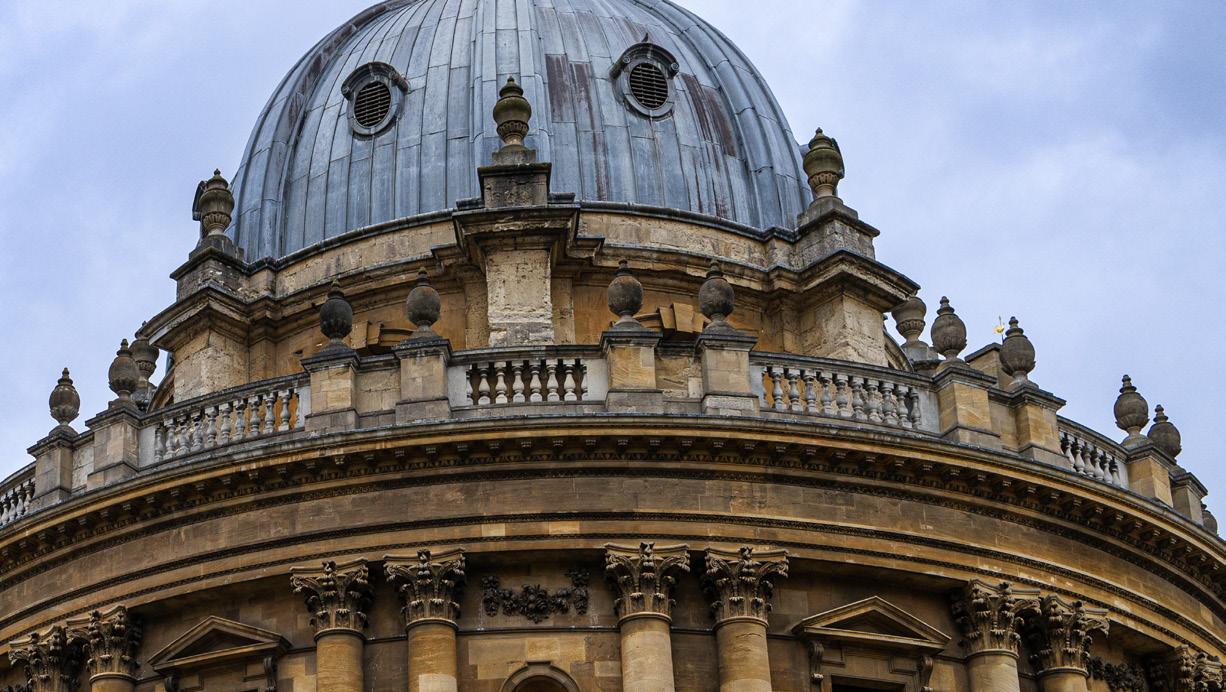
Two influential speakers refuse Union invitations, calling motions “demonis[ing]” and “offensive” - Anandita Abraham
Two invitations to speak at Oxford Union debates on current affairs have recently been refused, on similar grounds.
Professor Gerald M. Steinberg, invited to speak on the motion “This house recognises Israel is an apartheid state responsible for genocide”, turned down the invite in a reply in July. On Thursday, Indian filmmaker Vivek Agnihotri refused an invitation to debate the motion “This House Believes in an independent state of Kashmir.”
The invitees cited the topics, the wording of the motions, and “demonisation,” as reasons for their refusal. Both speakers are well-known for their staunch opposition to the themes featured in the respective motions.
Park End moves to Bridge - Cameron Samuel Keys
The organisers of the Park End club night, have released more details about their move to Bridge. Atik closed in June of this year as a result of disagreements with the Landlord. Atik’s parent company, Rekom, said that the closure was as a result of the landlord’s plans to “to redevelop Cantay House into offices” and while, “we offered a number of solutions to enable ATIK to remain open…all of our proposals to continue trading were rejected by the landlord.”
Continued from page 1
...and it is not believed he has declared his candidacy for election to a legislature.
“Fit and Proper person” refers to an HMRC test which seeks to prevent “sham charities and fraudsters working within a charity, or targeting a charity from outside, to abuse charity tax reliefs.” Section 178 Charities Act (2011) lists persons who may not be trustees of a charity. Examples include an individual who has been convicted of an offence; an individual who has been declared bankrupt; and an individual who has been previously removed from the office of charity trustee.
Khan still awaits trial, in jail, on anti-terrorism charges. A court acquitted Khan of a conviction on the charge of unlawful mar-
riage. In June, Islamabad High Court overturned a conviction on charges of leaking state secrets. Two cases involving state gifts are suspended.
The University declined to
“ Khan still awaits trial, in jail, on anti-terrorism charges
comment on excluded applicants.
Conservative peer Lord Daniel Hannan insinuated to the Middle East Eye that the Commitee’s decision was political, saying: “I know that they were under both legal and political pressure from Imran Khan’s opponents...but giving in to pressure in this way reflects
badly on them.” Authorities in Pakistan have most recently been accused by Khan’s ex-wife of “isolating” Khan by stopping all visits and turning off lights and electricty in his cell.
Other prominent candidates on the list of thirty-eight include: Lady Eilish Angiolini, Lord Peter Mandelson, Lord William Hague, Lord David Willetts, Baroness Janet Royall and Dominic Grieve.
One approved candidate, Matthew Firth, described himself as the “anti-woke” candidate in his candidate statement. Another, Harry Stratton, said: “I haven’t invaded any Middle Eastern countries”, in an apparent reference to front-runner Mandelson’s role during the Blair government.
After two rounds of voting, the Chancellor will be
announced in the week of November 25. The election will take place through an online ballot by a convocation of 250,000 Oxford graduates and University members.
“ Our interpretation of the law is that he is absolutely eligible
Labour and Conservative student societies have meanwhile been campaigning to elect the candidate from their respective party. Labour has been campaigning to engage sympathetic alumni, and the Oxford University Conservative Association endorsed Sir William Hague.
Continued from page 1
This comes after last term’s encampments on the lawns of the Oxford National History Museum and the Radcliffe Camera, protesting Oxford University’s ties to Israel. The group which organised the encampment, Oxford Action for Palestine, are not believed to have been involved in this protest.
Palestine Action have commented: “No institution has the right to profit from the genocide of the Palestinian people. We encourage all students and citizens to escalate their actions against all institutions and companies who work with Israel’s biggest weapons producer, Elbit Systems. Together, we will win.”
A university spokesperson said: “The front entrance of the University offices in Wellington Square has been subject to vandalism. Oxford University
Security Services responded along with Thames Valley Police in the early hours of Monday 14th October. The University is working with the Police to identify those responsible. The University offices remain open.”
They went on: “The University condemns the unjustified violent attack to the entrance of its Wellington Square offices, for which the Palestine Action group, and endorsed by OA4P, has claimed responsibility.
“The University condemns the unjustified violent attack to the entrance of its Wellington Square offices.”
The entrance was attacked by three individuals using lump hammers to smash all of the plate glass frontage to the building rendering the entrance unusable, and who then sprayed paint over the walls. Whilst the individuals attempted to gain access to the building, they were unable to do so.
The University is working with the Police to identify the individuals responsible for
this crime, which took place in the early hours of Monday 14th October. The University offices have remained open.”
OA4P have stated that they “stand in solidairy with Pal Action” because “we acknowledge our shared goals in highlighting the complicity of the University of Oxford in Israeli genocide, occupation and apartheid,” however disputed the idea that they endorsed the action.

Clinton Pugh, father of award-winning actress Florence Pugh, announced he had sold his cafe on Cowley Road and lost about £900,000 due to a “traffic calming disaster” from Low Traffic Neighbourhoods (LTNs).
The cafe, also known as Cafe Coco, was closed in April this year after reportedly being in operation for over 31 years.
Pugh, a well-known business owner who has run famous
shops such as The Lemon Tree and Kazbar, said the closure has been “emotional” on Instagram last week.
“ Thank you Council for your illthought-out traffic calming disaster
“Thank you Oxfordshire County Council for your illthought-out traffic calming disaster,” he remarked.

Pugh explained that many traffic problems in Oxford in the past 32 years have been caused by the county council through the removal of single yellow lines.
“There used to be single yellow lines directly opposite, but once the stupid cycle lanes were introduced, the nighttime economy was hit,” he noted. “I’ve always said that I am happy for a greener, cleaner Oxford, but let’s do it properly.”
Pugh was also upset about the “horrible wooden boxes”, conventionally known as bollards, the county council has stuck in LTNs. “LTNs are supposed to be flower boxes but they have weeds growing in them which is pathetic,” he commented.
To express his anger, Pugh even erected an anti-LTN billboard alongside his restaurant. Installed in May, LTNs aim at reducing vehicle numbers by limiting vehicle access to certain streets through temporary and permanent barriers. Ac-

cording to a review earlier this year, only 18 percent of residents felt their views affected the council’s decision-making. Responding to Pugh’s comments, Oxfordshire County Council commented: “LTNs are intended to make residential streets safer, quieter and more comfortable for walking, cycling and wheeling. They are designed to work with other measures to make it easier to
get around and improve the health and wellbeing of our communities.”
That said, Pugh is still grateful for the “wonderful stars” who have “made Cafe Coco so special” and his family’s support. “My family has been incredibly helpful, especially my daughter, who has given me a huge amount of money to get us out of this, so I can end up retiring,” he remarked.

Yusuf Kungdol is the Comment Deputy Editor at The Oxford Student.
Education has become a focus point for the Labour Party, with the war on private schools proving popular amongst the electorate. What is less likely to be appreciated, however, is the planned rise in tuition fees for home students across the country, which would add even more pressure to already stretched student budgets and debts. At the time of the election, Education Secretary Bridget Phillipson assured us that the Labour government had no plans to increase tuition fees; fast-forward three months and it appears to be another case of promises shelved and a U-turn from Prime Minister Keir Starmer. Now, it even garners support from a Labour peer and candidate for Chancellor of this university, Lord Mandelson. The pragmatists on the La-
bour benches will argue that it is a necessary measure to ensure that British universities can survive, and it is a decision that they make with the heaviest of hearts. Admittedly, there remains an argument that a rise towards a reported £10,500 per year is not unreasonable. The value of the current home fee - approximately £9,000 - has eroded over the course of last decade with the average humanities student reportedly costing Oxford double that amount per year.
My issue with the proposal is not economic. Rather, it returns to the principle mentioned in the title. Why burden students with increasing levels of debt and stress - especially given the other challenges that our generation faces? We should be encouraging further education for students of all backgrounds,
but if fees continue to rise then we are in danger of returning to a situation where attending university becomes a social symbol of the elite.
“ Education is said to be the greatest provider of social mobility anywhere in the world
Of course, it is unsustainable for universities to continue to admit record numbers of students at fixed prices. Increasing the intake of international students has provided some relief for universities and Rishi Sunak prioritised degree apprenticeships as a way of furthering education without
increasing the burden on universities themselves. Some suggest that the so-called ‘Mickey Mouse’ degrees require culling, and instead we should be focusing our time and money on degrees where the return is more obvious. But these approaches all fail to get at the heart of the argument against tuition fees. Education is said to be the greatest provider of social mobility anywhere in the world - this is why it receives such focus in immigrant communities. We should not be raising barriers to education and learning, we should be breaking them down - and what better way to signal this message than to fight the economic arguments with moral principles. It would be naive to suggest reducing fees - but the very least we could do is ensure that they do not rise.

Credit: Tara Earley
On Monday morning, Oxford Action for Palestine (OA4P) informed The Oxford Student that they had disbanded the Encampment outside the Radcliffe Camera. This comes after the University threatened the protestors with legal action if they did not disband the camp by the 7th July, but promised not to “pursue disciplinary action against students in respect of their presence on the camps up to 7th July.”
The first encampment began on the 6th May outside the Pitt Rivers Museum. The second encampment, outside the Radcliffe Camera, was set up on the 19th May. Organised by OA4P, these camps echoed a protest tactic seen on US Campuses earlier in the year. Protestors took aim at the university’s alleged ties to Israel, specifically referencing university investments and academic programs.
“The youth are usually right”: Palestinian ambassador to UK speaks to the Oxford Union
Canqi Li and Devika Manish Kumar
Dr. Husam Zomlot, Head of the Palestinian Mission to the UK, delivered an emotive Oxford Union speech on Monday, emphasising the role of youth in supporting Palestine. This was Zomlot’s third speech at the Union, with previous appearances in November 2023 and February 2022. The speech also marked the one-year anniversary of the Hamas-led 7 October attacks in Israel and Israel’s subsequent bombardment of Gaza, where the death toll has surpassed 42,000.
In his speech, Zomlot said young people are at the forefront of opposing Israel’s actions in Gaza, citing examples of university encampments and TikTok memes: “Every post you share makes a difference – it shows us that there are those who care, that we are not alone.”
Zomlot added that by rejecting the roles their own governments played in Israel’s military campaign in Gaza, young people have displayed “moral clarity”
and “instinctive understanding of who is oppressed and who is the oppressor.”
“Whether from the anti-war demonstrations of the 60s and 70s, or the anti-apartheid movement in the 80s and 90s, the youths – that is you – are usually right,” he remarked.
Zomlot stressed the humani-
“ It is the young generation [who have] an instinctive understanding of who is opppressed and who is the oppressor.
tarian situation in Gaza, noting 90 percent of the population has been displaced and that 500,000 are in danger of starvation. He also made special reference to the conflict’s impact on educa-
tion, emphasising that 625,000 schoolchildren were without education for the second year in a row. “Target education and you exterminate and annihilate people’s future,” he stated.
Zomlot claimed that global institutions have not just been powerless to intervene but also have been “actively hindered and handicapped by the continuing support of Israel’s actions by countries like the United States and the United Kingdom.”
“If it seems deeply unjust, it is because it is,” he said.
Zomlot went on to call for measures such as an arms embargo on Israel, describing the UK government’s partial suspension of arms export licences a “tentative step” in the right direction but “clearly not enough.”
Zomlot further called for sanctions on Israeli settlers, “fanatics” in Israeli Prime Minister Benjamin Netayahu’s government, and companies “profiting from the occupation.”
He added: “Every war criminal must be tried and treated as a war criminal at the Internation-
al Criminal Court. Not just the brown, or the black, or the Russians. Everyone.”
“ Global institutions hve not just been powerless to intervene but actively hindered
Responding to Oxford Union President Ebrahim Osman-Mowafy’s question on whether Palestinian President Mahmoud Abbas should convene a presidential election based on a public poll stating 90 percent of Palestinians wanted President Mahmoud Abbas to resign, Zomlot emphasised that at this point in time, the unity of Palestinian territory, people, and institutions is the most pressing need.
“There is a logic that for all these years, all Palestinians are mismanaged – I think that’s an extension of colonial racism.
Leave the issue of ruling us to us,” he commented, which led to an impassioned round of applause.
Responding to an audience question on the role of the United States in supporting Israel, Zomlot noted the importance of changing public opinion in countries like the United Kingdom to help “isolate” the US position.
For third-year English Literature student at Christ Church Asma Issa, Dr. Zomlot’s speech was “very accurate to everything that is going on” and “very beautiful yet tragic to hear.” “I appreciate that he was willing to hear certain critiques of his government,” she told The Oxford Student
However, according to second-year Law student at Regent’s Park, Zaid, the speech was a “very mixed bag.” “It was very eloquent speaking, but in many areas, I think it lacked substance – he was unable to address the critical flaws that have been pointed out about the Palestinian Authority,” he explained.
Historic Oxford café Vaults and Garden faces a court hearing tomorrow that will determine its future.
This is the latest development in a year-long row which has seen the University Church of St Mary the Virgin, the landlord, embroiled in an effort to evict Vaults and Garden and open up a new enterprise in its place.
The café is located in the heart of Oxford next to the Radcliffe Camera, and has been labelled a “city institution” by its supporters.
The church, headed up by Revd William Lamb, will press for an immediate possession order at a hearing on 24 September 2024, which will give it the legal right to take control of the café.
Mr William Pouget, owner of Fresh Connect Ltd which runs Vaults and Garden, said that the hearing is going ahead “despite efforts by myself to meet with him and
his colleagues on the church council to seek a settlement of our dispute”.
The church has said that the café’s closure will facilitate the running of a new “social enterprise” where the café is currently based, adding that it plans to spend more than £750,000 on improving accessibility, landscaping, and redeveloping café facilities.
However, Mr Pouget has disputed the need for work on the café, stating that in 2011, repairs and improvements costing more than £3m were made to the building that he claims “were said at the time to be sufficient for the next fifty years”.
In addition, Mr Pouget highlighted that “full disabled access facilities”, including wheelchair entry doors and a special toilet accessible by lift, were added as part of the repairs.
Mr Pouget has also alleged that the café is holding, on deposit, a sum of £143,531.82 for rental payments that he

claims have been returned by the church over the last eleven months.
He further said that “acceptance of these monies by the church would signify that we are not trespassers”, potentially undermining legal arguments by the University Church that the café are trespassers on a short-term licence, rather than long-term tenants with more than 21 years occupying the premises.
A church spokesperson, meanwhile, has said: “The money in question is categor-
ically not “rental payments returned by the University church” – rental payments would imply that the occupiers of our vaults have or have had a lease, rather than a license to operate.
“When the occupier’s license was terminated, we were unable to continue to take license payments, because to do so would imply that the license had not been terminated.”
Over the last year, a petition decrying the café’s closure has received over 14,000 signatures.

Oxford City Council has passed a motion against the Home Office’s plans to reopen Campsfield House, an immigration centre in Kidlington, Oxfordshire.
Campsfield, a repurposed youth detention centre, housed immigrants from 1993 until its closure was announced in 2018. The centre had attracted significant negative press due to accusations of poor living conditions, incidents involving arson and even riots in
2007, in which nine people were injured. As a result, Campsfield was the target of many protests during its 25 years of operation, though an inquiry undertaken in 2014 insisted that the quality of life in the centre was more positive than elsewhere.
The community fears that reopening Campsfield would be detrimental to the lives of immigrants. Campsfield itself has been the site of hunger strikes and two suicides. Such centres are generally associated with harsh condi-
tions, and incidents of self-harm are not uncommon. For instance, the organisation Asylum Welcome, a local organisation that supports asylum-seekers and refugees, has reported that from January to May 2024, there were 284 instances of self-harm in immigration detention centres across the UK.
The organisation released this statement regarding the government’s initiative: “We urge you all to back the motion and to raise Oxford’s voice to Keep Campsfield Closed.” Asylum Welcome said to The Oxford Student: “The painful experiences of detainees over the 25 years that Campsfield was in operation are an indelible part of Oxford’s collective memory, as witnessed by generations of Asylum Welcome volunteers.”
The motion opposing the re-opening was passed with overwhelming support. The issue was raised by Green Party councillors at Oxford Town Hall on Monday evening. Thirty eight out of the

Oxford named best university in the world… again
- Cameron Samuel Keys
For the ninth year in a row, Oxford University has been named the best university in the world by Times Higher Education (THE), the longest streak of any university. This year’s rankings include 2,092 universities from 115 countries.
Oxford has held the top spot since 2017, succeeding the California Institute of Technology, who placed first between 2011 and 2016. The only other university to be ranked number one, since the rankings began in 2004 is Harvard University.
Universities UK calls for “re-set” of sector
- Cameron Samuel Keys
forty councillors present voted in support of keeping Campsfield House closed, with the other two abstaining. Most strikingly, all 20 Labour councillors voted in favour of the motion. The council is therefore expected to convey their demands through a letter from the Leader of the Council, Susan Brown, to the Home Office.
Activist groups have welcomed the council’s support. The Green Party Councillors and Keep Campsfield Closed triumphantly exclaimed “WE DID IT!” in a shared Instagram post following the passing of the motion.
The government, however, has not backed down. The Home Secretary, Yvette Cooper, has not given any indication of the plans regarding Campsfield House being scrapped despite protestations from within her party. Asylum Welcome added: “We urge the Home Secretary to heed the voice of Oxford’s Labour-led Council and rethink this backward step.”
A report published by Universities UK, including contributions from Oxford Chancellor candidates, has called for a “re-set’ of the university sector.
Universities UK is a group of 141 universities, of which Oxford is one. The report describes itself as driven by one purpose “to create a UK university sector that is better in ten years’ time than it is today.”
Through their recommendations the report aims to achieve five big shifts: “expand opportunity; improve collaboration across the tertiary sector; generate stronger local growth; secure our future research strength; establish a new global strategy for our universities.”
The report includes contributions from candidates for Chancellor, Lord Peter Mandelson and Lord David Willets.


Chris graduated with a Classics degree from Oriel College in 2023. “Most people simply don’t know what the subject is, and others ask me what job it leads to,” he tells me. For humanities students and other takers of ‘Mickey Mouse’ degrees, his sentiment is all too familiar, and spans from petty jokes to real social distaste. But is it really subject choice that dictates so much of our futures?
‘Mickey Mouse’ degrees now have their own Wikipedia page. Ever since the term was coined by Margaret Hodge over 20 years ago, it has become a common pejorative for humanities students like Chris to hear. And this sentiment is translating into statistics. While STEM subjects are increasing their enrolment in the thousands, that of the humanities is decreasing at a startling rate (HESA).
What actually is a ‘Mickey Mouse’ subject? According to former Prime Minister Rishi Sunak, they encompass “ripoff degrees” that fail to increase long-term earnings – in most cases, we can generalise them as humanities degrees. Already we see how subjective this term really is. We’ve seen Classicists and PPE-ists (such as Sunak himself) at the very top of Parliament – admittedly with a helpful serving of
nepotism. Long-term earnings probably aren’t directly proportional to the subject you choose on UCAS so many years prior. Writing for the Telegraph, Annabel Fenwick Elliott uses her own experience to defend the Conservative pledge to scrap degrees deemed useless, despite acknowledging herself that she “had no interest in academia”. Admittedly, I am completely biased in advocating for the utility of a humanities degree. Who is to carry on our rich cultures and traditions, if not for a new generation of acdemics and critics? Will the future be a soulless, corporate shell, void of human emotion? Not to mention the transferable skills offered by a degree in the humanities – where would marketing be without the literature graduates boasting an excellent command of the English language?
“ Most people simply don’t know what the subject is, and others ask me what job it leads to?
Posed with the problem of university funding, Labour must decide whether to stick to their original promise of scrapping tuition fees or to
remove the current fee cap altogether. Recently, however, reports have circulated that the government is planning to raise tuition fees beyond £10,000 over the next five years, the (almost inevitable) next step in their constant U-turns.
“
The influence of tech billionaires on U.S. foreign policy is no longer theoretical - it’s real and it’s growing.
The Institute of Fiscal Stud ies suggests an alternative option, that of increasing gov ernment grants to specific (of ten STEM) subjects, meaning that univer sities only pro vide for the subjects which cost less to teach. Not
only is this option more expensive for the taxpayer, but it also perpetuates the subject divide we have seen all too often.
The common thread here is a self-fulfilling prophecy. Defunding the arts surely means that humanities and arts graduates are naturally going to struggle to find jobs in their fields – yet this is used as evidence for these degrees being useless. A mindset purely geared towards economic growth throws away any consideration for the quality of


courses. Roehampton University, for example, closed their Classics department in 2022, despite it being ranked one of the best in the UK. How can we blame Classics degrees for reducing job prospects when 226 of the lecturers are made redundant? Do we simply forget about the Greeks and Romans
It’s not what you know, it’s who you know. In 2011, for every graduate job there were 83 applicants, and it’s no secret that nepotism is the key ingredient for success. The age of LinkedIn has ushered in a wave of self-made ‘nepo babies’, attempting to rival traditional ‘old boy’ networks. But for Oxford graduates like Chris, who don’t benefit from the parent-to-profession pipeline, a degree from such a prestigious institution may do more harm than good.
“
A degree from such a prestigious institution may do more harm than good.
“The impression I had when I started at Oxford was that doors would open for me,” he says, “but I would say that the opposite has happened. Potential employers see an Oxford graduate as entitled and overbearing, regardless of my achievements. Perhaps this would have been different if I had a STEM or law degree.” When has it ever been the case that we always go into the field we have degrees in? Maybe we should let people enjoy things, and focus on the more insidious MA (Oxon).

Hassan Akram is a 2nd year History and Politics student
On July 5th Keir Starmer had just won a landslide, taking over from the most incompetent administration in living memory, and outside Downing Street he made his first speech as Prime Minister. “My government will serve you,” he promised the country.
Yet in a hundred days of office, he has succeeded in pleasing nobody and antagonising everybody. He possesses a suicidal mania for choosing policies calculated to upset as many people as possible. Means-testing the winter fuel payment guaranteed a quarrel with both left and right – one side was outraged by his attack on the vulnerable, the other by his attack on their voter base. Imposing VAT on private schools undermined the worst-off private-school pupils – by pushing costs further into the stratosphere of the ultra-rich and removing the charitable status which incentivises scholarships – whilst simultaneously upset the wealthy parents who must now, tragically, pay tax. In foreign policy, the decision to ban 8% of
arms export licences to Israel has infuriated both those who see it as an act of betrayal, and those who say that it does not go far enough. In attempting to make compromises and be all things to all men, Starmer has forgotten Nye Bevan’s remark about the fate of politicians who stand in the middle of the road: they get run over.
Meanwhile he refuses to enact those policies which would please more voters and secure positive change.
Scrapping the two-child benefit cap would, according to the Guardian, ease the poverty of 1.1 million children.
Yet Starmer not only refuses to lift the cap but has expelled seven Labour MPs for voting against it. This was a horrific move and showed just how far he had strayed from Labour’s social-democratic core. Even a High Tory of the nineteenth
“ Most people simply don’t know what the subject is, and others ask me what job it leads to?
Labour leadership in 2020 –pledges to increase of income tax on the top 5% of earners, to abolish university tuition

century would not have booted out his own MPs for voting to relieve child poverty.
The Prime Minister’s attempt to create unity and party discipline only served to illuminate his authoritarianism. As Rosie Duffield MP told the Telegraph: “Starmer is how he appears on TV – astonished that anyone dares question him.” His personal character does very little to inspire hope for the Labour government. A gloomy prime minister is probably in keeping with the national mood – but the shrewd, square face and the nasal, headmasterly voice contain no charisma and no vision. He has not even Ed Miliband’s or Jeremy Corbyn’s ability to inspire affection. He will speak with equal dispas sion of the ethnic cleansing of Gaza as of the Leasehold and Commonhold Reform Bill – and from his behaviour it is clear which of the two he cares about more.
“When he gets to power,” people used to be fond of saying, “he’ll act differ ently.” Clearly this has not happened. What hope is there that his manifesto, his ‘five missions’, will last this sitting of Parliament? He has reneged on all the pledges he made when running for the
would say he is simply being careful not to accuse another
“ Most people simply don’t know what the subject is, and others ask me what job it leads to?
MP of racial prejudice. But his insistence on depicting Jeremy Corbyn as a monstrous
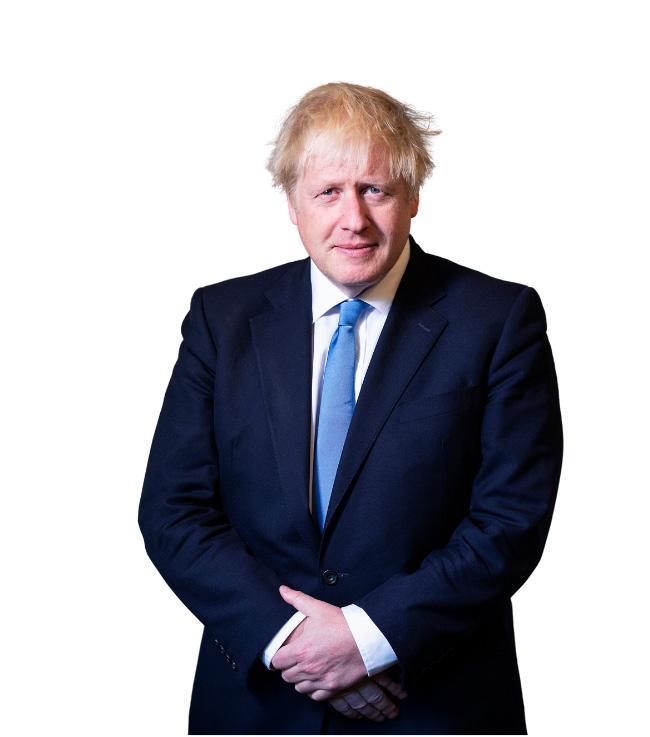
criminal Tony Blair and the neo-Fascist Georgia Meloni are suggestive of the kinds of leaders in whose company won significantly fewer votes than Jeremy Corbyn in 2017 or 2019. His move to the centre may have enticed some moderate Conservatives to vote for him, but their arrival was balanced out by the defection of left-wing voters to the Greens or the Independents. Many voters who deserted the Conservatives still did not vote Labour, as can be seen from the inflationary rise of the Liberal Democrats and Reform. The difference between 2019 and 2024 was not the absence of Corbynism, but the collapse in the Tory vote the far-right. In spite of its accomplishments so far, Labour must do better if it wants to win the next election. Keir Starmer must show, not tell us the principles that he claims to possess, and he must loosen his authoritarian style of leadership. Above all, what he must do in the next five years is, if not to fix everything overnight, at least to show the country that we are heading in the right direction, towards lasting and beneficial change. The alternative – as the recent experiences of European countries show – is the far-right.
Read the full article online at www.oxfordstudent.com
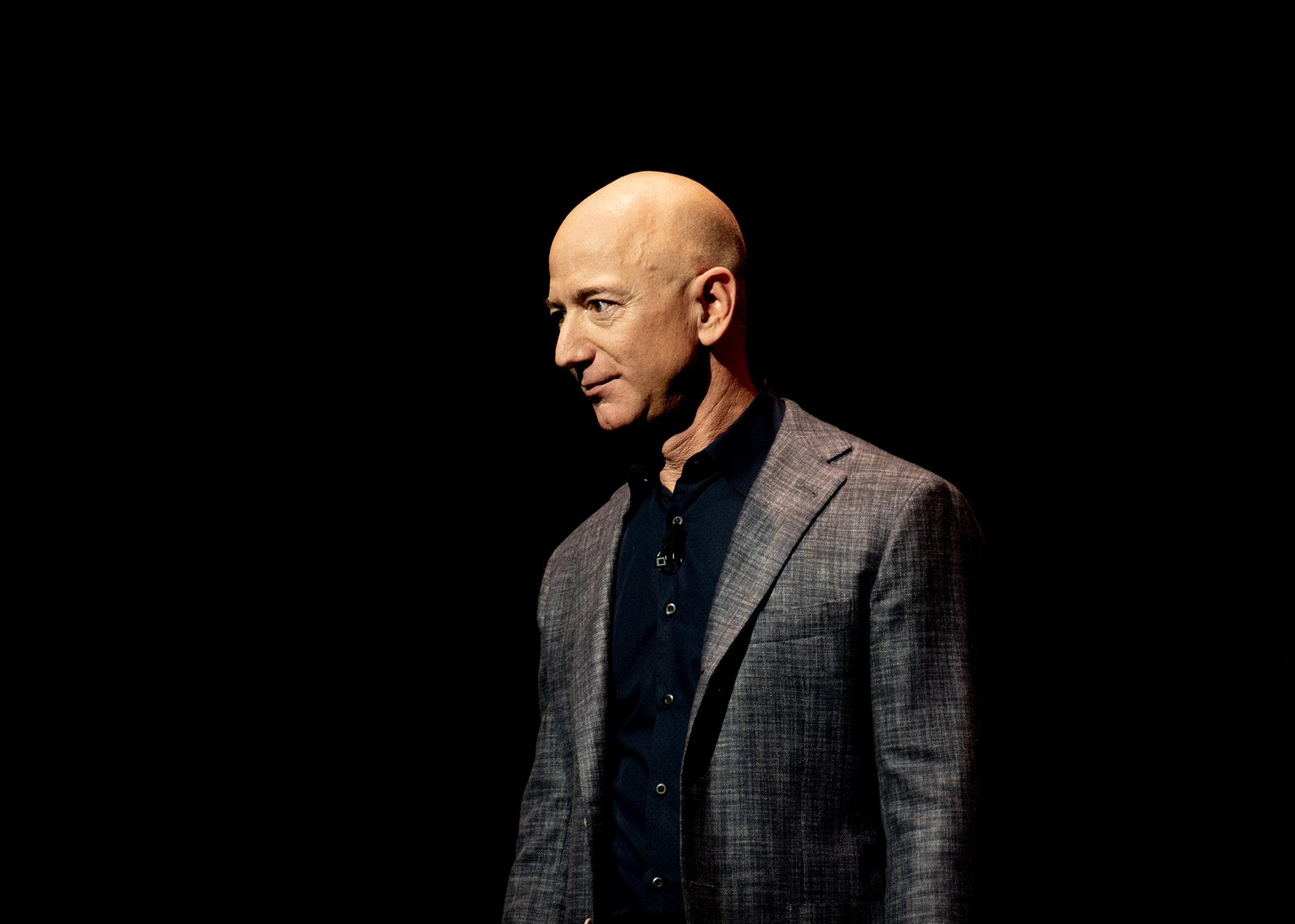
Political power is shifting, and it no longer rests solely in the hands of traditional government officials or diplomats. Instead, tech billionaires like Elon Musk, Mark Zuckerberg, and Jeff Bezos are increasingly steering U.S. policy, especially in the ever-complex Middle East. Through their control of social media platforms, ownership of influential media outlets, and substantial political donations, these titans are shaping the narratives that drive public opinion and, in turn, influence key policy decisions.
For many Americans, the morning news is no longer coming from newspapers or TV broadcasts. Rather, it’s
popping up on their social media feeds. According to a 2021 Pew Research Centre report, over half of U.S. adults now get their news from platforms like Facebook, Instagram, and Twitter. This shift has given figures like Zuckerberg, who owns Meta, and Musk, who now controls X, an unprecedented level of influence. It is indeed one thing to run a social media network— it’s another to subtly shape the political narratives that flow through it.
In terms of real-world scenarios, during conflicts such as the ongoing Israel-Palestine tensions, how stories trend on platforms like X or Facebook can significantly shape public opinion. If an algorithm push-
were not directly tied to foreign policy, the sheer volume of money ensures that these billionaires hold considerable sway in broader political discussions.
And then, of course, there’s Musk, whose $44 billion acquisition of X didn’t just give him control of a social platform; it gave him a powerful megaphone for influencing global politics. Whether it’s his impassioned takes on free speech or his views on how to moderate sensitive political content, Musk has indeed made sure he’s not just a tech mogul—he’s a player in the global political arena. His stance on handling controversial topics such as the Israel-Palestine conflict on X has raised many eyebrows and sparked debates, proving that he’s not afraid to wade into geopolitical waters.
Social media dominance is one thing, but owning a venerable institution like The Washington Post is another level of influence entirely. Jeff Bezos’ acquisition of The Post in 2013 did not just diversify his portfolio; it gave him direct access to shape the political and international discourse.
According to the Columbia Journalism Review, media ownership offers billionaires like Bezos the opportunity to subtly guide the narratives shaping both public opinion and policy. Whether it’s social or traditional media, these tech titans aren’t just amplifying voices—they’re choosing which ones get heard.
kicker: a study from MIT’s Sloan School of Management found that false news spreads 70% faster than the truth. This is particularly concerning in international conflicts like Israel-Palestine, where misinformation can escalate tensions and confuse public debate.
“ The influence of tech billionaires on U.S. foreign policy is no longer theoretical - it’s real and it’s growing.
The tech moguls at the helm of platforms like X and Facebook are not just passive observers in this process— they’re the ones deciding how these algorithms work. In doing so, they wield significant control over the information that shapes not only public perception but potentially even governmental responses. In other words, Musk and Zuckerberg are not just tech innovators—they’re key players in the construction of political reality.
es pro-Israel content, the U.S. political debate may tilt in that direction. Conversely, a surge of pro-Palestinian posts could fuel calls for a shift in U.S. policy. As The NYT has pointed out, these algorithmic nudges are not just technical tweaks, they’re influential tools in shaping geopolitical narratives.
Beyond their digital empires, tech billionaires are actively reshaping the political landscape through their stark financial contributions.
Take Zuckerberg and his wife, Priscilla Chan, who contributed over $400 million to election-related efforts in the 2020 U.S. election, largely benefiting Democratic-leaning areas. While these donations
While social media platforms shape the flow of information, AI and algorithms have added a new layer of
“ The influence of tech billionaires on U.S. foreign policy is no longer theoretical - it’s real and it’s growing.
complexity to how political narratives are formed. AI systems determine which stories go viral and which disappear into obscurity. And here’s the
The influence of tech billionaires on U.S. foreign policy is no longer theoretical—it’s real, and it’s growing. Through their control of social media platforms, ownership of major media outlets, and their deep pockets for political donations, figures like Musk, Zuckerberg, and Bezos are actively shaping the discourse that influences policies in certain countriesthe Middle East.
As we approach the U.S. election, the role these tech titans play in shaping public opinion will be closely watched. With the lines between politics, media, and technology increasingly blurred, the influence of these tech billionaires isn’t just a modern twist—it’s redefining what it means to be a power broker in the 21st century. Their reach is vast, their influence subtle but undeniable, and their role in shaping the future of U.S. foreign policy will likely only deepen in the years to come.
of the week
“
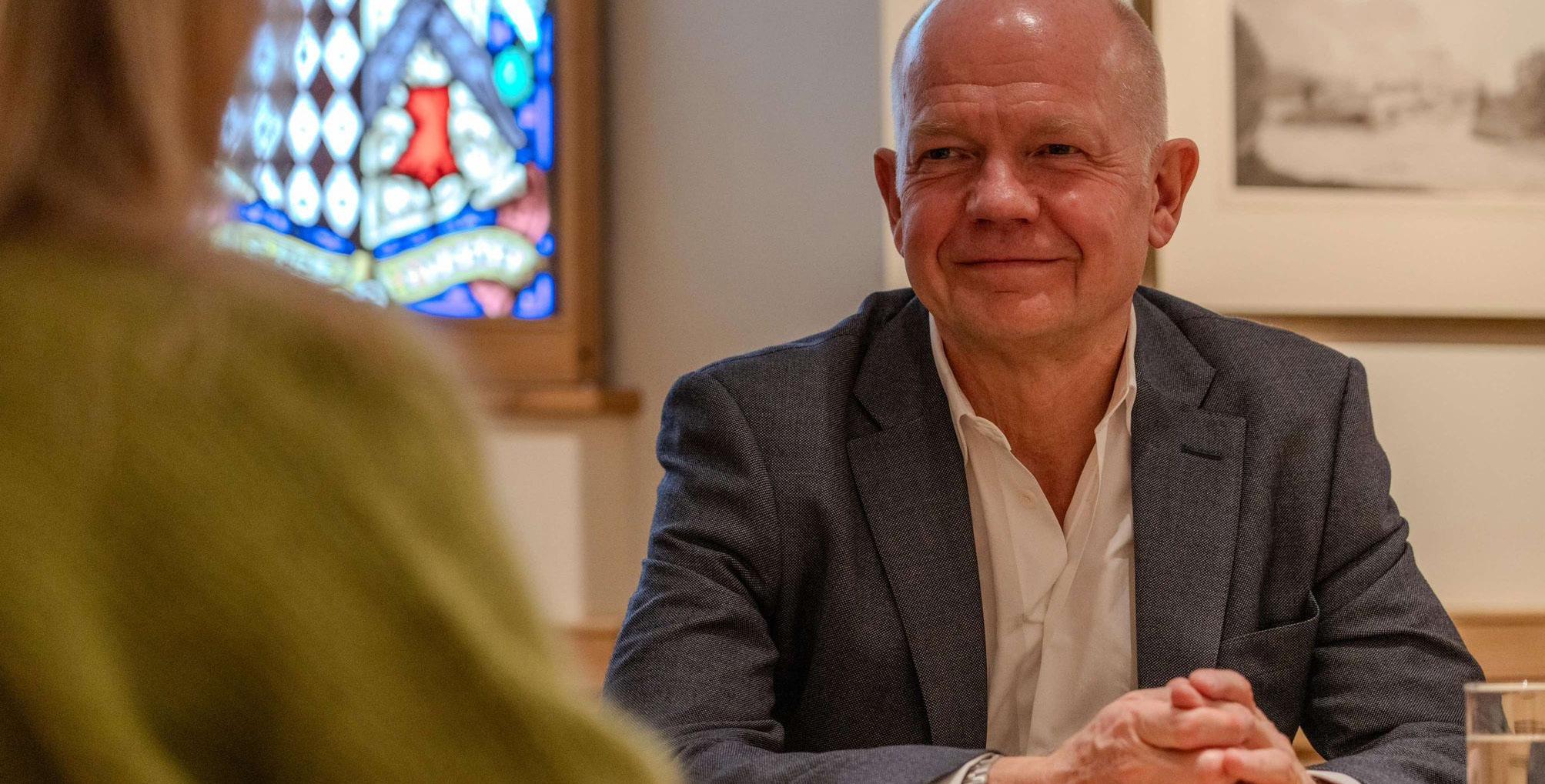
Not many achieve the feat of serving as President of the Oxford Union, as well as gaining a first-class degree. William Hague, however, did just that.
Lord Hague studied PPE at Magdalen College, matriculating in 1979. He served as Leader of the Conservative Party from 1997 until 2001, and then served as Foreign Secretary from 2010 until 2014.
I met with Hague at Magdalen College, casting his mind back to his first encounter with the University. We passed his first-year accommodation in the grounds, where he recalled fond memories of his time at Oxford, remembering details as small as the window in this first-year room.
Referring back to his experience since graduating, Hague described his motivation to become Chancellor as threefold.
had a very busy 42 years since then.”
“I’m motivated by my own experience at Oxford, and the belief that it should be available, and built on, and further improved for future generations. By the time I left, I was ready to do whatever I went on to do in the world. I’ve
“ I think one of the great challenges for the future is how to raise more endowment
Speaking about the connection he has kept with the University since graduating, Hague explained, “I’ve always retained an involvement with Oxford. I’m an honorary fellow here at Magdalen, and I’ve often come back to teach seminars and lectures on politics or history.”
Not long after graduating, Hague was brought back to thinking about his former university. He was a key player in the original ‘campaign for Oxford’, a scheme that allowed the University to better fundraise. “[Oxford] was running out of money in the late 1980s. We did a free study for Oxford, and designed what became the campaign for Oxford that
then went on to raise £500 million five years after that, several billion in the years after that. I designed that program.”
However, according to Hague, Oxford’s current en-
“ Oxford has to change as appropriate while keeping its great traditions and great strengths.
dowment will not suffice in keeping the University on top of rankings. “I think one of the great challenges for the
future is how to raise more endowment for the University, to keep it at the top of the Times Global Rankings, which is great, but we have to keep it there.”
Hague believes that by using American universities as a model, Oxford could reach its full potential on the world stage. “A lot of the experience I’ve had is something I could put to use in the service of the university. I think it’s important for the next Chancellor to be able to articulate to the world what Oxford is, and how critical it is to the future of the country. It’s really important to be able to connect it to the endowment of the future, which means America, and I have deep connections in government, philanthropy
and business in America.”
Attributing Oxford’s progress to its increased endowments, Hague explained, “It was a great university then, but it has now benefited from all the close partnerships with the private sector and with major donors. Now, when you think of things like the Schwarzman Center for Humanities and the Ellison Institute, none of that was there in 1979.”
When questioned on his main aims if he were to be elected, Hague made it clear that he would not intend to be an interfering figure. One of his aims would be to “express the values of the university”, with those values including,
“freedom of speech, access, irrespective of background, and cherishing all disciplines.”
However, in a period of global change like no other, he believes that the University is also going to have to adjust with the times. “Oxford has to change as appropriate while keeping its great traditions and great strengths like the tutorial system, but the Chancellor will have to give voice to that.”
“Oxford is at the forefront of deep research, many potential scientific and technological advances, but it’s very well placed to combine that with humanities, with ethics, philosophy, history and lan-
guage. I see the Chancellor’s role to be expressing the values and the relevance of Oxford in a world that is changing more rapidly than ever.”
Sat in what Hague remembers to be the college’s old tuck shop, he reminisced about his time as a student. “Magdalen has improved in all sorts of obvious ways. Now, it has more accommodation and has big plans for across the river. It didn’t have a regular college bar – I used to spend my time in Trinity College bar because there wasn’t a bar here.”
However, the improvement in Oxford’s diversity has been the most notable for him.
“There would have been very few female Heads of Colleges, and now there’s the second female Vice-Chancellor, and Magdalen has a female president. In terms of every kind of diversity, Oxford is a much more diverse place than in 1979, so that’s the biggest change for me.”
On the issue of freedom of speech, due to the controversy of speakers invited to the Union in recent years, Hague (a former Union President) affirmed that preserving free speech is essential. “It’s very important to hear arguments that make you uncomfortable, and that was certainly a really important part of my time at
Oxford. I was in the Union a heck of a lot, and learned a lot from being prepared to be on either side of a debate.”
“I think, partly, people have to adjust to freedom of speech, but also it’s the way freedom of speech is conducted. Everybody has to get a fair expression of their opinion, and the opportunity to argue back, and to feel involved, and to feel that they are respected, that different points of view are respected, and so that people aren’t just hearing one side of an argument.”
Read the full article on our website.
Imran Khan, the jailed exPrime Minister of Pakistan, announced his run for the position of Oxford Chancellor on 18th August, from jail. Though any hopes for a quiet, uneventful election were long dashed, Khan’s announcement has been met with incredulity, endorsement, and speculation. Khan received support from Independent MP Shockat Adam and Conservative Peer Lord Daniel Hannan, who called him a “towering figure,” while one journalist characterised him as the “Taliban-friendly” choice.
The UN characterised Khan’s detention as a violation of international law, and his supporters are calling it politically motivated—any mention of his name in Pakistani media has been silenced by government directive, his parties’ supporters have been jailed, and higher courts have acquitted him of some charges. He and his party, PTI, still hold a broad, but unpredictable base of support in Pakistan. Howev -
er, Khan’s run for Chancellor has been used by some to highlight what is regarded as an inconsistent and repressive record on freedom of press, women’s rights, and civil freedoms.
The position of Oxford Chancellor has also come under scrutiny in recent months
“ My imprisonment has not hindered my ability to lead or inspire change
despite being described as “largely ceremonial.” Conservative MP Neil O’Brien alleged that newly installed Chancellor’s Election Committee was trying to install a figure who was not a white male, and a government source was quoted accusing the body of a “performative obsession with diversity and equality.” Though accusations of “wokeism” were denied, the body has reversed plans to vet candidates and to exclude candidates involved in politics.
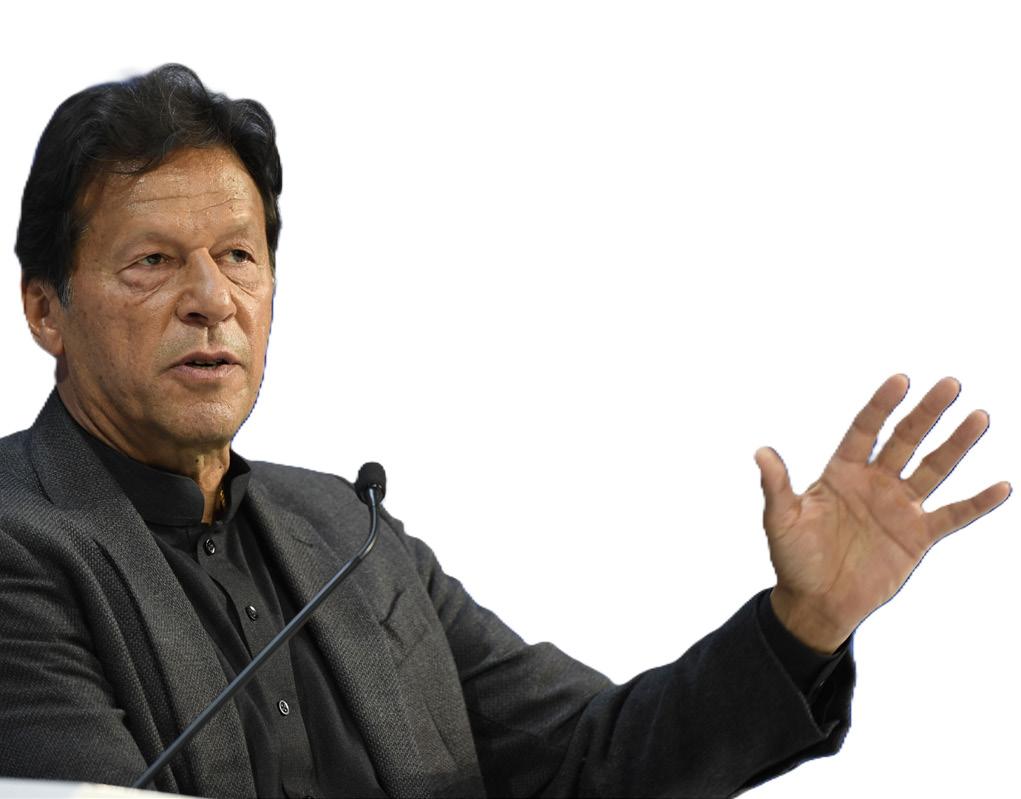
Outgoing Chancellor Patten said candidate Peter Mandelson’s claim that Oxford
needed a non-Tory Chancellor “a sort of stupid argument.”
The Oxford Pakistan Society, in a statement last week, has called for for “independent, fair and just process” from the Election Committee, expressing concern about “politically-motivated demands for [Khan’s] disqualification.”
Khan was Chancellor of University of Bradford from 20052014. However, motivations behind this run for Chancellor have been questioned, with some, including an Oxford faculty member, arguing he intends to send a message— perhaps about his freedom to stand for democratic elections abroad.
The Oxford Student asked Khan how he will run from jail, what he really hopes to achieve, and how he would address issues important to Oxford students.
Q: No Asian or non-white individual has held this position before. Is it time for that to change?
A: Yes, it is time for Oxford University to reflect the diversity of the world it seeks to lead. Historically, the role of Chancellor has been held by British individuals, and six previous Chancellors have served as Prime Ministers. If elected, I would be the first non-white, non-British indi-
vidual to hold this position. This would send an incredibly powerful message – not just about Oxford, but about a truly global Britain. Q: Many are wondering how you will perform your duties if you are elected, when you have been imprisoned for over a year now. How do you think your Chancellorship would pan out given your arrest?
A: I understand the concern, but I expect my unjust detention to be resolved soon, as it has been condemned internationally and I am winning all the frivolous cases in court, most have been thrown out already. My imprisonment has not hindered my ability to lead or inspire change. As Chancellor, I would remain fully committed to Oxford’s
“ If elected, I would be the 1st nonwhite, non-british individual to hold this position
mission, drawing on my global network and leadership experience to ensure that I fulfil the responsibilities of this important role.
Q: The outgoing Chancellor was particularly concerned
about the crisis in university funding and wanted increased government intervention rather than increases in tuition fees. What kind of role do you believe the current UK government should play in higher education?
A: The UK government has a vital role to play in ensuring the financial sustainability of higher education. However, I believe the solution lies in a balanced approach. While government support is crucial, universities must also look beyond government intervention and develop independent funding mechanisms to protect their autonomy. My vision for Oxford includes building a global fundraising network, drawing on alumni, philanthropic networks, and partnerships with the private sector to diversify the university’s financial base. This would reduce the pressure on tuition fees, while ensuring that Oxford remains financially strong, accessible, and innovative. I have three cancer hospitals and a college. For which I have raised well over seven hundred million dollars. Allowing the majority to be treated and educated for free.
Read the full article on our website.
Week 6
Thurs 21st Nov
Oxford Town Hall


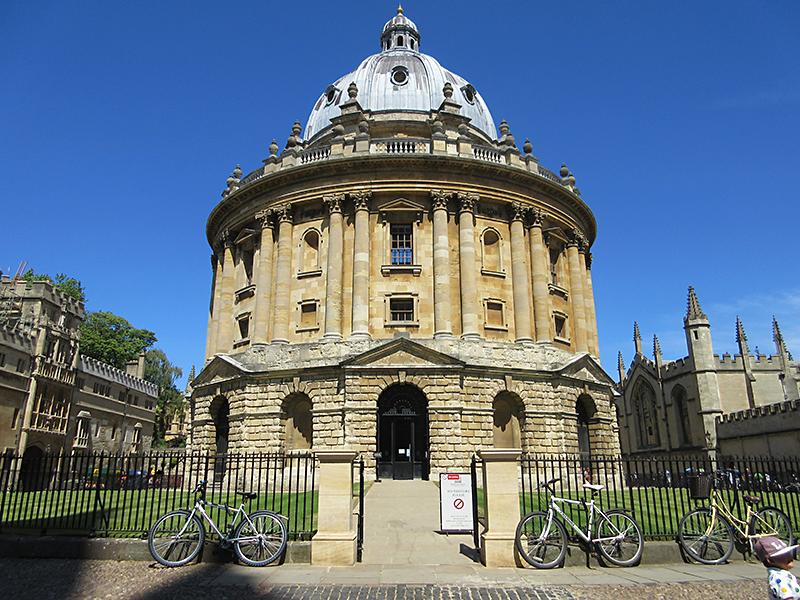

Last spring, I attended a conference presentation about the future of AI in medicine. The speaker’s thesis was that AI will be used in the world of scientific advancement by augmenting human intelligence. I found myself nodding along, agreeing heartily with the idea of supplementation over replacement. That is, until the speaker decided it was apt to offer the arts as a point of contrast. They suggested that while ChatGPT is incapable of completing basic math problems, it can, however, write poetry. I’m sure I was not the only one present who wanted dearly to remind everyone that ChatGPT is a generative language learning model (LLM), not a math model. Regardless of this unnecessary jab at poetry’s comparative simplicity to basic mathematics, I did take issue with another implication.
AI’s ability to write poetry in response to human prompts was intended to enhance the original thesis that AI augments human intellect. That’s all well and fine, but this sounds a lot like replacement to me. Yes, the human might account for an original idea,
but the idea doesn’t account for the artistry itself; the process of stringing together the right words to create something meaningful or suggestive of a poetic truth is what constitutes a work of art. Is it not?
My exasperation with this presentation was not personal. It was rather a mixture of anxiety and frustration with the casual discrediting of the arts. If AI can write poetry (or compose any kind of art, really), then why do we still need these practices? My question-as-answer is this: How much “human” does poetry need that AI, in all its mimetic glory, will never be able to replace?
“ Ultimately, the future of AI in poetry will depend upon readers of poetry themselves.
To approach this question, it’s helpful to start with some words regarding poetry. Poetry engages several overlapping facets of human cognition, some more identifiable than
others. Faculties like decision making, logical reasoning, and problem solving all kick into gear as content and language interact in the production and interpretation of poetry. These functions—as we discovered when Deep Blue (a chess-playing computer program) defeated the human champion in 1997— can be deftly replicated by AI. From a strictly functionalist perspective then, AI can be quite successful at writing poetry. However, other cognitive processes, such as emotion, consciousness, and imagination, function in ways not yet entirely mapped by neuroscience. These faculties can be and have been mimicked by computer programs, but imitation of subjectivity and original subjectivity exist on radically different planes. Real inner experience is fortunately still a thing left to the human.
If we do, however, choose to accept that AI can write poetry (at least on a primitive level), does this automatically promote all LLMs to the rank of poet? The OED (that trusty companion) defines ‘poet’ as ‘A person who composes poetry; a writer of a poem or poems; one who writes in verse’. And yet I wonder if this definition should be taken as
|
authoritative (in that being a poet first requires personhood) or outdated, in which case we would require a revision or perhaps a new term entirely to categorise such ‘robot-poets’. It is my inclination to insist upon humanity as a precondition to producing art, but such conclusions implicate much broader and more complex questions about the nature of art and subjectivity than I can account for here. As digital creative programs continue to grow in prevalence, however, we ought to be wary of taking for granted the connectivity implicit in engaging with art that has been created by another human being. Ultimately, the future of AI in poetry will depend upon readers of poetry themselves.
“ Perhaps we need not be so fearful of AI’s infringement upon the creative spheres
I surveyed my social media network to gather views on AI’s ability to write meaningful poetry and based on the results (of two scores of irritated readers), it’s clear that some are moderately sceptical and most are downright angry. In one question, I asked how the knowledge that a work of poetry is written by AI would impact the respondent’s reading experience. Sixty-eight percent said they “would read it, but only for the purpose of learning about AI’s ability to write poetry.” Only one individual selected that they would read the poems in the same way they would read poetry written by a human author, while most selected either: “I would refuse to read it” or “I would read it, but remain emotionally removed from the experience.” I asked respondents to leave additional comments regarding poetry and AI, and was left with a few particularly memorable insights. One wrote: “Why are we working 9-5s to survive
while AI is enjoying the benefits of creative pursuits? AI should replace human labour so we can return to pursuing our interests instead of being slaves to capitalism.” Another expressed the futility of poetry devoid of inner experience: “AI hasn’t experienced life, yet. It has not been fucked by the system, yet. So it cannot produce the types of poems I enjoy reading, at this time.”
Two people noted that poetry by AI would involve some level of plagiarism and would be thereby void, and a third observed the complete lack of “human touch or soul” integral to the literary arts.
To see if these frustrations were shared by readers of nonfiction, I asked if the knowledge that a work of scholarship or criticism was written by AI would impact the respondent’s reading experience. The results were nearly as hopeful. Sixty-two percent said they would read AI-authored scholarly writings, “but would fact-check everything with peer-reviewed, human authored sources.” Three individuals said they would read AI’s scholarship and “accept the information as accurate and true”, but another added a personalised response to the same question which I found particularly poignant. They said: “I actually think I’d feel sad....there’s something about creative human breakthroughs that grabs my spirit. People can spend decades working towards solutions and cures and that toil means something”. Evidently, it’s not only the imaginative work of poetry that feels fundamentally human. Any output of the creative mind, whether it be under the ambiguous category of ‘the arts’ or not, bears much of that humanness we so value in both the process and finished product of all our works.
Anxieties about changing dynamics between computer programs and human beings will no doubt persist, but perhaps we need not be so fearful of AI’s infringement upon the creative spheres. So long as people continue to need the human in poetry, poetry will continue to need the human.
Before coming to Oxford, the word “matriculation” had not once been said aloud to me. In fact, I was half-scared that I’d end up pronouncing it wrong (having mistakenly mispronounced ‘Magdalen’ on my first day of university).
As a new cohort of freshers don their sub fusc and head over (wobbling slightly) to the Shelly, I thought I’d take a dip into the history of this very Oxbridge tradition.
Firstly, why matriculation?
This is due to the nature of the collegiate system. Students come to Oxford as a member of a college (or sometimes, a faculty), not as members of the University. Matriculation is the colleges’ act of presenting their new students to the University, and the University accepting those students. It is also a way of keeping records. When students matriculate, they are added to the University’s register. Ordinances surrounding these rules were passed in 1420 and again in 1552 – a sign that they were ignored the first time around.

Rohan Kaya is doing his Masters in Middle Eastern Studies at Pembroke College.
Rules were passed again in 1565 to reinforce the ability of the University to keep a register, and this was the year in which the very first matriculation register was created. However, the first entry from Christ Church didn’t come about until 1572. I can’t blame Christ Church for not getting the memo – with the amount of emails I’ve received in the last week, it’ll probably take me seven years to read through all of them too! Initially, matriculation involved the paying of fees. They were charged based on a student’s social status; the wealthier or more noble one was, the more they were charged to matriculate. Almost 90% of students were lumped into the “plebs” category, although realistically this just meant non-noble. Matriculation was of course altered as English religion transformed under the Reformation. In 1581, all matriculating students were required to declare their assent to the Thirty-Nine Articles of the Church of England, the Book
Living and studying in Oxford, one inevitably runs into people with bright, inspiring success stories of those who overcame odds to get here. Yet many students arrive here and find very few, or none at all, compatriots to share their experience with. In this column I’ll be meeting a few of these students, and you’ll be hearing some of their stories and learning a little about their home countries which may not receive the attention they deserve in our national and local media.
While we have all had to fund our studies in one way or another, it’s not so often that you come across someone who mobilised an entire country to fund their place at
of Common Prayer and the oath of Royal Supremacy, all of which barred anyone who wasn’t a Protestant from matriculating. From this point until the 19th century, only Protestants could become students at Oxford. However, this was only for anyone aged 16 and over, and so after 1581 there was an increase in youth studying at Oxford. Many 12 and 13-year-old boys joined the University so that they could receive their degree without declaring assent to the Protestant tracts. In 1871, the Universities Test Acts enabled any male of any faith to matriculate.
As anyone at Somerville or Lady Margaret Hall might know, women were accepted into colleges (or technically, permanent private halls) in 1879. Yet matriculation was a sore subject for these women. It took 41 years for members of women’s colleges to become members of the University. Until 1920, women could not matriculate, nor could they graduate, and they were also restricted from many build-
ings and libraries around Oxford.
Yet the act of matriculation itself is now somewhat outdated. Registration all occurs online, so we no longer have to complete a form by hand, nor are we added to a physical matriculation register. The main attraction of matriculation is sub fusc, a term derived from sub fuscus, which means “dark brown”, though the clothing is black and white. Its lineage can be traced back to the coats and ecclesiastical robes of medieval Europe, when dress marked rank, hence why we have Commoner’s and Scholar’s gowns. It’s part of a very rich history of clothing symbolising status; much of the motivation of getting a first in prelims is to be able to flex your fancy new scholar’s gown at formals.

Punting is a relatively new tradition for Oxford; the first pleasure punts became popular in the late 19th century. Punts were originally a mode of transportation for cargo and livestock, but much like those who walk around col-
Oxford. I spoke to Omer Mihovi, a second-year Biochemistry undergraduate from Serbia. Omer was ready to give up his place at Oxford which he had spent years preparing for, until he met a driver who encouraged him to find funding support through his local community.
Just one month before Michaelmas term, Omer wasn’t yet sure whether he could come back for his second year. He tells me that he comes from an old Bosniak family in Sandžak, a part of Serbia populated mostly by Bosniaks. Growing up as a Muslim in Serbia brings challenges that have increased in recent years, he says. However, Omer emphasises the need to understand that Serbia is not synonymous
with its media reputation: “Serbia is more like 27 countries in a trenchcoat.”
Omer made the decision to apply to Oxford long before reaching his final year of school, spending years in preparation without guidance from someone ‘in the know’, and yet became a local celebrity when he received the happy news last year: “I got hundreds of hugs from people in the street.”
When Omer realised he had no source of funding, he was ready to give up his place and try for the University of Belgrade. That is, until he started to receive packets of money, donations, and offers of help from people not just in his town, but from throughout the country. Just 25 days later
lege in work boots and shop at Urban Outfitters, the industrial became trendy and student-ified. Punting boats were refitted with seats, and students and tourists alike became obsessed with the activity. This was also tied to the industrial revolution, and more modes of transport opening up – punting cargo became less of a necessity and more of a form of entertainment. So although matriculation feels like something that is rooted in the very walls of Oxford, the modern-day matriculation ceremony, as well as the punting, is a mix of the old and the new. As someone who is both female and non-Protestant, my own matriculation felt like something of a triumph. It is only in the past 104 years that this has been possible. Wearing the dress of an era in which women were barred from academic recognition, matriculating in a process entirely different to what the majority of previous students experienced, matriculation is very, very old, and wonderfully new.
he had raised the necessary funds and was set to attend Oxford.
Though Omer tells me he has truly found his place in the University, moving to a city with very few other Bosniaks and Serbs comes with a bit of homesickness, especially a nostalgia for traditional food and his local café back home. Omer stresses the importance of making connections with others who, despite not being from the same country or background, similarly moved across the world to pursue their academic goals. While he loves Serbia’s warmth and community spirit, Omer feels invigorated by living somewhere like Oxford.
Read the full article on our website.


Sophie Harrison reflects on her experiences in Oxford as
Starting university can be daunting for anyone. It’s likely that you’re juggling many new experiences: moving away from home, exploring an unknown city, even facing imposter syndrome (perhaps especially at Oxbridge). First impressions are then shaped by the overstimulating social free-for-all that is freshers’ week. This introductory period is certainly vital to help students integrate into university life. Yet, for an introvert, it can feel like stepping into a whirlwind with a barrage of names and faces all blurring together.
There is a caveat here: people should not (and cannot) be put into boxes. Just because you are introverted does not necessarily mean you are shy; it is really more about social energy. Introverts tend to be drained by social interaction, whereas extroverts may be energised by it. This is not to
say that an extrovert won’t enjoy spending time alone, nor that an introvert won’t enjoy socialising. Introversion to extroversion is a scale with many degrees.
“ Introverts tend to be drained by social interaction, whereas extroverts may be energised by it
But I find myself on a far end of that scale. Due in part to this dominant introversion, my own fresher’s experience was challenging. Arriving at Oxford without knowing anyone and facing a bereavement within the first weeks, I retreated inwards. Of course, there’s nothing wrong with spending time alone if this
in the right circumstances?
With socials, nights out, and communal living, university might appear tailored to extroverts. When you live in very close proximity to your peers for the first time, it can be difficult to strike a balance: I want to interact with people each day but not all day. Not conforming to certain expectations can make it harder to fit in. In The Introvert’s Way: Living a Quiet Life in a Noisy World, Sophia Dembling writes: “One of the risks of being quiet is that other people can fill your silence with their own interpretation: You’re bored. You’re depressed. You’re shy. You’re stuck up. You’re judgemental. When others can’t read us, they write their own story –not always one we choose or that’s true to who we are.”
Introversion at Oxford

enables you to process and recharge. However, there is a fine line to tread when this begins to feel like an obligation and not a choice, being lonely versus being alone.
Introversion at university
It’s easy to assume that you are ‘failing’ at university if you haven’t made as many friends as other people. Sometimes, freshers’ week brings a sense of panic, as if you need to find the people you will spend the next three years with immediately and cling onto them for dear life.
In reality, though, early friendship groups might not (and often don’t) remain stable. Perhaps you did manage to meet others instantly and stay the best of friends. Or perhaps you fell out spectacularly. Maybe you met many people but ended up with only a small circle of friends. Much of friendship, I think, is luck. Who do you happen to meet
that I have been made intensely aware of this shyness, in a world which seems to constantly comment on the fact that I don’t talk a lot (which implies not enough). A quick search for synonyms of ‘quiet’ brings ‘clammed up’, ‘uncommunicative’, ‘tight-lipped’ and even ‘secretive’. Meanwhile, the word ‘introvert’ results in ‘solitary’, ‘brooder’ or ‘loner’. But there are benefits to being an introvert too. Being introspective, observant, and a skilled listener are among the most obvious. If there is an intensely social side to university, it’s also a much more independent academic setting. Late nights in the library, cramming for the next collection, walks to clear your head, are all things we may learn to do alone.
Is there something specific about the experience of being an introvert at Oxford? I’d argue yes. The brevity of each term versus the intensity of the workload complicates a work-life balance. As soon as the final essay is submitted, it’s time to pack everything away and rush home – in my case, vacating college before 10am on Saturday of the eighth week. Sometimes, social opportunities in and around Oxford might pass you by as you (convince yourself that you) don’t have time.
Oxford’s unique teaching style may be more or less effective for each individual. On one hand, the prospect of one-on-one discussion with an expert during a tutorial is understandably intimidating. Yet smaller-group teaching can equally be less intimidating, providing a quieter space to open up. Personally, I’ve always found it easier to communicate in this setting.
Introversion in society Does society more broadly valorise extroversion? Every parents’ evening, my mother would predict teachers’ feedback ahead of time: your daughter’s work is good, but she does not contribute enough in class. Speaking up and being a leader are values that school systems tend to promote.
It’s not simply that I’m shy which poses a problem, but
“ Much of friendship, I think, is luck. Who you happen to meet in the right circumstances?
Most importantly, extroverts and introverts don’t need to be diametrically opposed. Sometimes, a combination of the two – not to be thought of as incompatible but actually complementary – is an asset. Throughout secondary school, my best friend was highly social and outgoing, while I was quieter – and we got on all the better for it. Final thoughts
My grandmother was probably the most extroverted person I’ve met. Perhaps that’s why we also got on very well. She loved Frank Sinatra’s “My Way” and sang it with passion: “To think I did all that / And may I say, not in a shy way / Oh no, oh no, not me / I did it my way.”
Over time, I have realised that this song can mean different things to different people. Above all, I think it’s about looking back and recognising that you stayed true to yourself. And though both university and society at large tend to promote extroversion, I finally think it’s okay to do it my way, the quiet way.
Find your community, make a difference, and gain leadership experience with SU Campaigns!
SusCam - CoChair
We lobby for University policy changes to improve the process of suspension and equip students to campaign for change in their college.
It Happens Here - CoChair
Rufus Jones is a third year historian at University College
Since its debut starring Signourey Weaver, the Alien franchise has become one of the most wellknown in cinema history. That such a famous franchise is getting a new instalment should be a good thing, but I felt uneasy when I heard the news. In my curmudgeonly way, I think too much cinema has gone the way of Marvel; sequels, no longer a meaningful way of expanding upon a franchise’s premises, are usually lucrative, often insipid and seldom requested. Alien: Romulus was a pleasant surprise.
As I discovered in a handy 5-minute video recapping all the films, Alien: Romulus sits between the first and second films (Alien and Aliens respectively). I was glad that although improved by a bit of

Shilpi Nanda is a third year French and history student on her year aborad in France
foreknowledge, one’s watching experience isn’t diminished without it and the film stands up perfectly well on its own; the plot is basic enough to facilitate both the superfan and the uninitiated.
Rain (Cailee Spaeny) works on a Weyland mining colony, Jackson’s Star. She lives with her adoptive brother, Andy (David Jonsson), a humanoid robot with a penchant for corny jokes. As she’s worked her required hours, she thinks her time on the colony is up, but as any evil conglomerate worth its salt would do, her contract gets inexplicably lengthened. Outraged at this betrayal, she agrees to her ex-boyfriend’s crazy escape plan: she and a gang of other disaffected workers will commandeer an abandoned ship and use its cryostasis pods to travel to a hospitable planet far from Weyland’s reach. Surprisingly, the plan goes off without a hitch and the
My closest friendships at Oxford have been forged around a table full of food. Whether it was late-night dumpling-making sessions, semi-successful attempts at recreating Korean BBQ, steaming bowls of soup from Tse Noodle (an Oxford institution), or even the lacklustre offerings at hall, there was always an edible centrepiece adorning our conversations. When we were particularly weary of our degrees and in desperate need of comfort, I’d offer to make a dish close to my heart: chicken karahi.
Chicken karahi is a staple of Pakistani and north Indian cuisine, named after the heavy, flat-bottomed pan it is traditionally cooked in. A simple, yet wholesome dish, it boasts a fiery and warming blend of spices, tender chicken pieces, and a tangy tomato-based gravy. It’s my
crew waste no time in getting to the cryostasis bay. While fiddling with the machines, however, they get locked in and those outside hurry to turn up the temperature. As it happens, not only do they warm themselves up but also a group of baby xenomorphs (known as facehuggers) that had been kept frozen all the while. The facehuggers go on the attack and the crew fight most of them off, save for one that attaches itself to and makes a carrier of one hapless crewmember, Navarro (Aileen Wu). The gruesome birth of a tiny xenomorph ensues (which we are spared little of). As these incidents make evident, the ship is not an ordinary one, but a research laboratory used by Weyland to experiment with xenomorphs (hence the freeze-dried facehuggers). More chilling is that the ship was not abandoned, but instead had all its crew killed, and that lurking
go-to when I need to recreate the feeling of home, and when I want to share the same warmth with my friends that I would get when my mum would make it for me.
It’s her recipe after all, or at least my version of it. No matter how many times I practise and tweak the recipe, it’s still not quite the same as hers. That’s the beauty of it, really. Each time it’s made, it takes on a slightly different flavour, reflecting the person making it and those they’re sharing it with. but when I decided to make it for some of my new housemates in France the other week, I was determined to make it as close to perfect as possible. Judging by their delighted faces - and the fact that no one spoke for about five minutes after the first bite - I think it was my best yet. After those first few minutes, we were chatting like we had known each other for months,

within the ship are even more xenomorphs. To add insult to injury, within hours the ship’s unbalanced axis (don’t ask me) means it’s on a collision course with the rings of a nearby planet.
From this point on, the plot doesn’t do anything especially surprising, enjoyably delivering exactly what we expect it to. That’s why we could dismiss such a film as a cash-grab. In my view, though, Alien: Romulus isn’t that. It’s not trying to reinvent the wheel; as mentioned, Sigourney Weaver’s famous performances
rather than days.
Second helpings were served, luring more housemates to the kitchen, intrigued by the scent of spices wafting through the house.
Soon enough, the table full of food was now empty, save for a few spillings of sauce and grains of rice scattered about.
Eventually, the people around the table left too, but thanks to my chicken karahi, we were all that bit closer.
So, if you need a taste of comfort, here’s my recipe. This makes about three to four servings, depending on how hungry you are. My sole advice with the spices is to measure with your heart, or as I once said to editor-in-chief Georgie, “keep adding them until you can hear my Indian ancestors telling you to stop”. Whatever tweaks you make, however spicy you like it, just make it your own.
• 400g chicken, cut into
have iconic status for a reason. The film is as much an homage as anything else, as it brims with both obvious and oblique references to the franchise’s past. There are, however, some great performances and artistic shooting that warrant attention in their own right.
At its heart, Alien: Romulus is a fleshing out of the Alien canon: a film that’s light on plot development without being a remunerative husk. Such a thing can exist! It’s an exciting watch, certainly, with glimmers of disarming eeriness.
chunks
• 400g tomatoes, chopped
• 8 cloves garlic, chopped
• 2 tbsp ginger, finely chopped
• Chilli
• Oil or ghee
• Seasonings (all to taste)
• Salt
• Black pepper
• Cumin
• Coriander seeds
• (OR garam masala)
• Coriander (to garnish)
Heat a generous amount of oil in a wide, heavy-bottomed pan. Set the heat to medium-high.
Lightly brown ginger, garlic, fresh chilli, cumin, and coriander.
Stir in the chopped tomatoes. Cook for 5 - 10 minutes. Add salt and pepper to taste. Now, add chicken to the sauce and cook for 10 - 15 minutes. When ready, stir in some chopped coriander and serve
You’d expect someone studying French at Oxford to have read Le Comte de Monte-Cristo (1846).
It is, after all, one of the most famous French novels of all time. But, standing at over 1,000 pages, in 2 volumes, and heavy enough to double as a paperweight, it has remained firmly relegated to the when there’s more time pile of my TBR.
Yet, like renowned English classics such as Dracula or Frankenstein, its reputation precedes it. It’s easy to feel that you know something about Le Comte de Monte-Cristo without really knowing anything about Le Comte de Monte-Cristo. From Alexandre Dumas, the author of Les Trois Mousquetaires (The Three
Musketeers), it is a sprawling adventure story, a tale of rags to riches, and, above all, the ultimate revenge quest.
Shortly after moving to Paris for my year abroad, I visited the nearest cinema, under instructions from my exchange university to watch a French film in its version originale –no dubbing and no subtitles allowed. Here was the perfect opportunity for immersion into the story I had never found time to read; the recent French-language adaptation of Le Comte de Monte-Cristo condenses Dumas’ plot into just (ha) 3 hours.
The revenge quest to end all revenge quests
How far would you go to right a wrong? When does justice become vengeance? Pierre
Niney stars in the lead role of Edmond Dantès, the once gentle, wide-eyed boy that betrayal and heartbreak will conspire in transforming (will transform?) into a vindictive man. Though the film opens with a shipwreck in which Edmond is framed as the hero, saving a woman from drowning and being rewarded with a promotion to captain, such clear-cut moral portraits will go on to later disintegrate. At the altar, where Edmond is to marry his true love Mercédès (Anaïs Demoustier), he is falsely accused of being a Napoleonic conspirator. The next hour of the film lingers on his imprisonment in the Château d’If, from which he desperately tries to escape by carving a tunnel in the rock,
with the help of fellow prisoner Abbé Faria (Pierfrancesco Favino). Only after 14 years will he make it out, alone.
Irrevocably marked by his harrowing experience, Edmond will do anything to make someone pay. His mounting corruption coincides with social ascension, as
Credit: Jrôme Prbois
he profits from Faria’s knowledge about secret treasure to become the Count of Monte Cristo. Hell bent on revenge, he loses sight of his former identity, arguably becoming as deplorable as those who wronged him.
Read the full article at www.oxfordstudent.com

The troupe performing Tom Stoppard’s Darkside at the Edinburgh Fringe last week was brilliant; the script, less so. Oxford’s student group HotCatCollective realised the radio play onstage via contemporary dance. Set against a backing track of Pink Floyd music, the young student Emily McCoy (Gillian Konko) is whisked off to an otherworld of philosophical thought experiments, where she must “save the world”. Stoppard’s sleight of hand is to whisk us off to the otherworld of edutainment as if he’s saving the world. HotCatCollective’s governing idea was clever: take a radio play and transpose it into live acting intermingled with dance. The result was striking, lending a real verve and
emotional depth to the script; the choreography was lyrically entangled with the songs but always subtly. The whole cast exhibited perfect bodily control; no flailing or trailing. Similarly, there was not a dud moment of acting throughout; character changes were executed precisely with physicality rather than costume. Each detail of a demeanour could twist and change in a beat of Pink Floyd’s “Comfortably Numb”. Sharp spotlighting made it feel like various elements of the mind were being isolated and tested under the light in each thought experiment.
I admit I was a sceptic about contemporary dance. I still feel that I’ve seen all the available moves. I am sure this is like saying I’ve heard every
note on the keyboard thus am tired of tunes. But this was a show to affect the disaffected, those who think interpretative dance looks like air-wrestling. It did, but in an absorbing way.
What blundered around in a way the dancers didn’t was Stoppard’s script. It was exactly what you might imagine a stoned Pink Floyd fan whipping up. The God debate is reduced to discussion of whether there might be a silent juggler on the radio. This amounts to “is there an irrelevant, silly, unknowable thing in the world?”, which nobody is invested in debating. Stoppard has not slam-dunked us. At least, I did not feel slamdunked.
And the idea of “girl displaced confusingly into alter-
nate world” has been overdone since Dorothy lost her shoes etc.; the plot felt derivative of Sophie’s World. There was too much acknowledgement of how “crazy” the circumstances were, not enough bravado, or the unacknowledged weirdness that Pink Floyd manages to gnaw at. Take the smug line “everyone asks what the good is, but
not what the bad is”. It’s about the same as saying “man, everyone talks about turning the light on but not about turning the dark off”. Here’s a thought experiment for our man of thought experiments: imagine some shower thoughts washing down the drain unpublished.
Read the full article at www.oxfordstudent.com.


An Evening with Richard Dawkins and Friends promises an existentially loaded event on his final tour.
New Theatre, Sunday 27 October
Oxfordshire Science Festival including a talk by Dr Tom Crawford, more scientific answers to ridiculous questions.
Bullingdon Club, Tuesday 22 October 7pm
OULGBTQ+ Soc Black History Month event, celebrating the full spectrum of queer diversity.
Jesus College, Tuesday 22 October 7pm
Maisie Adam plays the Oxford Playhouse as part of her comedy tour of the UK, Appraisal
Oxford Playhouse, Sunday 20 October
Class Act x Swift Soc Charity Halloween Club Night
Location TBC, Sunday 27 October
Development of climate policy from Climate Soc with OxWIG
Location tbc, Thursday 24 October 17:30-18:30
Media Soc hosts a talk from Andrew Wincott, a British Actor most known for his work on The Archers.
Mansfield College, Wednesday 23 October 5pm
Election Convention hosted by Media Soc to dive into the US presidential campaigns of Vice-President Kamala Harris and former President Donald Trump
Corpus Christi College, Thursday 24 October
Rufus Jones reviews Netflix’s latest hit drama series starring Jeff Goldblum.
There’s never been a better time to be interested in classics. The past decade or so has witnessed a surge of books creatively reimagining Greek mythology for a wide audience. Whether it’s an audiobook rendering the fall of Troy in the dulcet tones of Stephen Fry or a paperback recounting the adventures of Percy Jackson against Medusa, there’s something for everyone. Outside of documentaries (and the odd remake), though, the stories of the ancient world seldom appear on screen. With the arrival of KAOS on Netflix, however, the general public’s renewed interest in the strange, gory and often hilarious world of the Greek gods can be satisfied. The show moves between a number of storylines that all fall under an overarching
theme: the instability of the rule of the Olympian gods. This is epitomised by Zeus’ paranoia about his prophecy: “A line appears, the order wanes, the family falls and Kaos reigns.” Prometheus serves as our narrator (he intends to overthrow the Olympians, by the way, so he’s pretty partisan), pointing out the pivotal moments and explaining any particularly complicated lore. This decision was a superb one; it gives the show a playful tone from the start (not that it’s without its serious moments) and enables anyone who might not be especially familiar with Greek mythology to revel in the craziness of it all.
Rather than a prosaic rendering of the mythological tales, the show places familiar Greek characters in the modern age to brilliant effect. Alongside a number of stellar performances (which I’ll get onto in a moment), it is this
that I’d argue makes KAOS a hit. The story of Orpheus and Eurydice is a highlight. Orpheus, whose lyre-playing was said to be so moving that it made stones weep, is a world-famous musician who performs to sold-out venues. Eurydice, whom we know little about in the original story, is a fleshed-out character, a long-suffering one who finds Orpheus’ musical obsession with her suffocating and wants to break up. I was surprised that they shifted the focus of the story so dramatically, but its modern and sympathetic approach was genius. Without taking too much licence, the show also doesn’t allow the lack of female voices in the original myths to pass without question.
One of the things that makes the Greek gods so difficult to grasp yet so intriguing is their imperfection. They’re very human – all too human, in fact. It’s shocking to see the
masters of the universe be so petty; they fly into a rage over small things, they overreact to simple misunderstandings (often resulting in cruel and unusual punishments) and they have a complete lack of perspective. It would have been a mistake to do away with this fundamental volatility of the gods because it is precisely what makes them so interesting and entertaining and awful.
This is what the star performances capture so well. Jeff Goldblum plays the all-father Zeus, as neurotic and insecure as one can get. His deep-seated need for approval makes him an easy target for the other gods’ power-playing. Few could have captured the cold-blooded craftiness of Hera as well as Janet McTeer, who exhibits the inexplicable and profound cruelty of the gods with panache.
Read the full article at www.oxfordstudent.com.
Isra Khan is an Oxford student alum with a flair for film review
With its ingenious marketing campaign, I found it nearly impossible to remove the hype about Longlegs from my mind whilst watching it. Having been dubbed the next The Silence of the Lambs by some, that comparison lingered in my mind as I anticipated a deeply disturbing, cerebral horror experience. But does Longlegs live up to its promises?
Longlegs reaches for an ambitious blend of crime thriller and supernatural horror – a genre hybrid that, whilst having met success before, remains as risky as it is ambitious. For me, however, it fell
flat as the film progressed. The first two acts set up an extremely promising foundation, drawing you into a world where the realistic investigation of a crime slowly intersects with the otherworldly. However, as the narrative unfolds, it becomes evident that this intersection is more precarious than it initially seems. I felt that the supernatural elements, instead of enhancing the story, felt heavy-handed, banal and even predictable at times, thus eroding the tension. One scene in particular highlights this issue, despite being one of my favourites: Longlegs, played by Nicholas Cage, delivers an encoded letter for detective Lee Harker, Maika Monroe. Similarly to the first two acts, the pacing
and unnerving atmosphere maintained in this scene are impeccable – it is clear how well Osgood Perkins and cinematographer Andres Arochi work together to visually bewitch audiences throughout.
“ It becomes evident that this intersection is more precarious than it seems
I was kept on edge, constantly conscious of the backdrop and what felt like the looming presence of Longlegs even in his absence. It was at this point I became aware of how hypnotising the film was and how
quickly I adopted an analysing eye for every shadow and subtle movement in Harker’s surroundings. But, just as the scene seems equipped to deliver something truly sinister, it falters. The exposure of the ‘666’ symbolism in Longlegs’ letter had me rolling my eyes, as one of the most compelling scenes in the film had lost impact with such a clichéd motif. Another aspect of the film that drew me in was the influence of David Lynch’s work, particularly the use of the uncanny to defamiliarise the quaint and mundane, though achieved in Perkins’ film once again by the brilliant cinematography, rather than the quality of the narrative.
Read the full article at www.oxfordstudent.com.
Nicole Gibbons visited Keats final resting place in Rome for her dissertation research nd reflects on the visit
“It might make one in love with death, to think that one should be buried in so sweet a place”
Percy Bysshe Shelley, ‘Adonais: An Elegy on the Death of John Keats’ (1821) My dissertation brought me to the outskirts of the Non-Catholic Cemetery in Rome, located at the foot of the Pyramid of Caius Cestius. I arrived only to discover that it was closed for a holiday the week I had planned my visit. Undeterred, I (attempted to) boost myself high enough over the wall to glimpse at the grave of the poet who had sparked my undergraduate fascination.
But beyond the scholarly incentive and potential for reimbursed sightseeing at the Colosseum and Vatican, my visit to Rome held a personal significance: to immerse myself in a city that so captivated the imagination of the English Romantic poets. John Keats (1795–1821), tragically visited under less enjoyable circumstances. This was, after all, the city where he spent his final months, incapacitated by tuberculosis.
Having nursed his own brother through the same illness, Keats left London for Italy in 1820 on recommendation from his doctor to seek a
warmer climate. On 10th December 1820, however, he suffered a serious haemorrhage, and his health steadily declined until his death on 23 February 1821, aged just 25.
A visit to the Piazza di Spagna (‘The Spanish Steps’) is a staple on any tourist itinerary, but just off the bustling piazza was the nexus of my literary pilgrimage - 26 Piazza di Spagna - Keats’ final residence. The building, saved from demolition by the Keats-Shelley Memorial Association and officially opened to the public in 1909, is now a dedicated museum and library. As you climb the winding staircase, you leave the hum of the outside crowds behind, stepping into a space preserved and sheltered from the summer heat.
The room itself is unassuming – a small space with two windows, terracotta floor tiles dappled in sunlight. Italian law dictated that the room’s original furnishings be burned after Keats’ death, but in spite of this there is still something deeply strange about standing in the very spot where someone died over 200 years ago, looking out on the same unchanged view of the Piazza di Spagna. The other rooms in the apart -
ment are chandelier-lit and lined with dark-wood library shelves; the handful of visitors who wander through the rooms of literary memorabilia are all here for the same, somewhat morbid, reason.
“ Beyond the scholarly incentive and potential for reimbursed sightseeing at the Colosseum and Vatican, my visit to Rome held a personal significance
Though this room is the main tourist draw, the museum is also dedicated to Lord Byron and Percy Bysshe Shelley, two other British poets collected under the ‘second-generation Romantics’ alongside Keats. Though a somewhat anachronistic and unhelpful categorisation, the three do share some uncanny similarities. Like Keats, both died young and died abroad; Shelley drowned at sea and Byron died while fighting in the Greek wars of independence against the Ottoman Empire. In a sense, their deaths away from England fulfilled their literary aspirations to be associated with the literature of the Classical world. The museum’s recent acquisition of Keats’ school copy of Tacitus’s Italian Orationes Omnes highlights his early fascination with classical culture and may have inspired his later, though tragically realised, dream of visiting Italy.

Among my favourite artefacts on display was
a letter from Keats to Joseph Severn on 6 June 1818, the friend and artist who would eventually accompany Keats on his final journey to Rome. It is a light-hearted exchange amidst his worsening health, one that humanises a poet who himself claims to have lived a “posthumous existence”, as Keats apologises for cancelling their lunch appoint with the following:
“The Doctor says I mustn’t go out. I wish such a delicious fate would put me in cue to entertain you with a Sonnet or a Pun.”
The friendships Keats formed were not only crucial for his poetic inspiration, but also shaped his posthumous reputation. His manuscript of Lamia is on display, though it has been cut into strips because it was distributed among his friends after his death. Contemporary responses, most notably Shelley’s publication of his elegy to Keats’ in 1821, contributed to the mythologising of Keats’ death as that of the ethereal poet tragically killed by the vicious reviews of his early work. In the following centuries, this symbolic reading of Keats’ life has continued to resonate in the works of Pre-Raphaelite artists and poets, to the alt-rock lyrics of The Smiths’ Cemetry Gates.
Outside those cemetery gates, peering in at the gravestone inscription that Keats requested, “Here lies one
whose name was writ in water,” you cannot help but wonder what more Keats could have written. But perhaps more impressive is the gravity of the poetry captured in the three volumes he did manage to publish during his short life, the last of which includes his most famous odes and my favourite poem, The Eve of St. Agnes, which I read as an A-Level student, and still love to this day.
“ In a sense, their deaths away from England fulfilled their literary aspirations to be associated with the Classical world
Though Keats is now firmly entrenched in the English literary canon, which can make him feel like a distant figure, visiting Rome left me far more conscious of his humanity. While Shelley may think that visiting Keats’ grave “might make one in love with death”, what I took away most from my trip was a sense of the living Keats – and the living, with whom his poetry continues to resonate to this day.
Keats grave. Credit: Nicole Gibbons

Max Fosh says he was “very much a goody-goody two shoes”
Eleanor Grant hopped on a call with YouTube sensation Max Fosh for a Q&A about his quirky antics, comedy influences, and more.
Max Fosh’s CV is unmatched: he’s paid a private investigator to follow him, he became the world’s richest man for 7 minutes, and he blagged his way into London Fashion Week. He’s also nobly dedicated a good few hours to mocking Oxford students in interviews on his eponymous YouTube channel. Nonetheless, it was time the Oxford Student interviewed him back as he whizzes around the country to start his global comedy tour, Loophole. We had a sit-down pre-standup show and roved over his Halloween plans, party tricks, and childhood attitude to authority.
Did you have a nickname growing up?
I used to get a lot of Foshfin gers or Maxy. What were you like? Were you rebellious?
Ironically, for someone who’s made a living out of just being a bit naughty and breaking the rules, I was very much a goody-goody two
“ I’ve been trying to film a video where I waterski behind a cruise ship for about three years...
shoes. I was the kind of kid who would stick up his hand and say “sir, you haven’t col lected in our homework yet”, which made me very unpopu lar with my peers and so I was deeply uncool. So, I guess that has slightly fallen by the way side as I’ve grown older, and I’ve become a little bit more of a risk-taker.
So you never tried to break
out of boarding school?
No, no, not at all… I very much stayed there, whatever we are told to do I will do. Yes sir, no sir, three bags full sir. And were you quite studious as well?
I was okay. I liked a lot of drama, I played a lot of sport, I was pretty middle of the road in terms of intelligence and academic performance so I just kind of coasted my way through. I don’t think I worked hugely hard. I’ve always been the kind of person to just do enough to get by. Well, doing the bare minimum tallies with a career in finding loopholes.
What are you going to dress up for as Halloween?
The brat colour. I think I’ll
I have an unpopular opinion, which is that I think Pizza Express is the best restaurant in the world, and so I think the chocolate fudge cake from Pizza Express is definitely up there.
What would be your Desert Island disc (singular)?
Either Rumours by Fleetwood Mac or the album to Inside by Bo Burnham from a comedy perspective. Who’s alongside Bo Burnham as your comedy lodestar?
I’ve got a few, so Bo Burnham is definitely one of them. There’s a woman called Josie Lawrence who I absolutely love. I’m also a big fan of Bill Bailey and Tim Minchin, so probably one of those.
I’ve been trying to film a video where I waterski behind a cruise ship for about three years. The annoying thing is that it’s been done before by the TV show MythBusters… I spoke to a few cruise ship companies. Their marketing teams loved it, and their risk departments were not so keen. So, I’d love to do that, but it’s proving very difficult! What’s your process for
“ I cannot do the worm, but I can do a reverse click with the back of my knuckle.

thinking these ideas up?
I’ve got a team of comedy writers. We sit down once a week and have these kind of big whole idea days where we just sit there and constantly brainstorm about what we could do and how it would work. And it’s all about contrast – we’ve really honed in on this idea of contrast. Take one of my videos where I cooked a meal in a volcano. That came from cooking: what’s the biggest contrast you could make with cooking? Where’s the most ridiculous place? It’s just about juxtaposition. Take one thing and then take the absolute opposite of that spectrum. So, is writing comedy more about hunkering down to
hard work or meandering around until ideas come to you?
Writing the show is a lot of meandering, because you can’t really be very prescriptive with yourself and be like “right, today I’m just going to write ten minutes of good material”. It just kind of comes to you at various points. You kind of think of comedy in sections, so you try and write a ten-minute section or story: this is how it started and ends… Again, I’ve got a great director who writes it with me, we sit down a lot and talk about why something is interesting.
What’s your star sign?
Aries. I’ve been told I’m very Aries, but I don’t quite know what that means.
What’s the best conversation you’ve ever had?
Oh, God, that’s a big, big question. I mean, one of the most memorable was when I was 21 at a birthday, and I was sat next to this woman’s grandmother. I remember thinking, “Oh, God, this is gonna be rubbish,” but then she just spoke at me for 90 minutes. It wasn’t really a conversation, just a long monologue about this woman’s life. And it was mind-blowingly cool to hear about what she’d done in her life and her perspective on things. I can’t remember what she was called, but it was something like Gladys, so wherever you are, Gladys, I hope you’re doing well.
We talk for a bit about that really sad TikTok where a young woman made best friends with an octogenarian and agree we need to make friends with more elderly people. Then he has to bounce.
Max Fosh will be touring with ‘Loophole’ until March 2025.



Ramadan is a confusing time for me. It makes me question many aspects of my identity and my relationships with religion and family. I was born into a Muslim household and lost my faith many years ago during high school, so Ramadan often forces me to confront some issues that I’ve neglected.
I was in Oxford for Eid in my first year, so it was the first time in my life that I didn’t get to see my family on the day and share that moment with them. Even though I don’t pray right now and have a complex relationship with religion, there’s still something about the month that is blessed.
Ramadan is the ninth month of the Islamic calendar when Muslims fast from Fajr (sunrise) to Maghrib (sunset) to fulfil one of the five pillars of Islam (Sawm). The exact days change each year, and Eid al-Fitr is the celebration afterwards confirmed by the sighting of the moon (which is why branches of Islam may celebrate it on different days). Ramadan also involves many special prayers during the night such as Taraweeh, where people will often gather in mosques or with their families to pray together and make dua (asking God for help, guidance and mercy).
I fasted during Ramadan
cook anything that smells too strong during the month out of respect for my family, and I always try to help out with errands while my parents are fasting. From an outside perspective, it sounds like a mighty task to not eat or drink for the whole day, and it’s not like your life pauses while you do. Living in a non-Muslim country means that you have to live by two contrasting calendars, and your holidays for school never align with religious ones. But despite my own relationship with religion, I do believe that the strong sense of community and faith makes Ramadan a really special month where fasting for the whole day feels more than doable.

for most of my life, so it became an annual routine that was ingrained in me. I vividly remember the first day I broke my fast midway through because I realised I was no longer fasting for God, and that was an im -
“ ...there’s still something about the month that is blessed.
Last academic year, my Easter vacation aligned perfectly with the Islamic calendar: I got home the day before Ramadan started, and I left a couple of days after Eid. It’s the old saying that you don’t miss something until it’s gone; I didn’t realise how important it was to me until I couldn’t come home. Communal prayer is a big part of Rama - dan felt

guilty eating with my family each evening without fasting, and I hid in my room when I wanted to eat or drink something during the day. My family held two of their own Taraweeh prayers together last Ramadan, and I didn’t attend the first because I felt so out of place sitting on the side and watching. After some convincing, I went to the second and had some really inspiring conversations with my aunts about life. Ramadan isn’t just about fasting for the sake of it: it’s a time of deep reflection and connection with both God and the people you love. I felt so proud seeing my younger cousins lead prayers, and I do still enjoy listening to people recite surahs (chapters of the Qur’an) because I find that there’s something really beautiful about it. Ramadan is also the only time my family sits at the table and eats together, and I value the bond I gain with my mother by helping her cook for us each night.
My family hopes that someday I’ll return to Islam, and their comments about that made me feel extra conflicted. I think that’s a journey that I need to make on my own, so if I do ever return to religion, I want it to be because I want to and not because I feel pressured to. Having left Islam though, I’ve found time to reflect on what it means to be religious: a lot of the values and beliefs I was taught as a child have stuck with me and made me a better person regardless of whether I believe in God, and I think that’s something. One day, I hope to have the time to research Islam for myself and decide if it’s something I believe in, but for now, I still value the connections I feel and the blessing my family gains while fasting each year.
Sharon Chau is a Master’s student in Public Policy
Riding on her Brat Summer high, Charli XCX released the remix album Brat and It’s Completely Different but Also Still Brat last week. It’s teeming with glorious remixes featuring Ariana Grande, Billie Eilish, Lorde, The 1975, Troye Sivan and many other artists. With some songs almost completely unrecognisable from their original versions, the album offers a thrilling, bold, and electrifying synthetic electropop experience. Most importantly, it means that we are heading into Brat Autumn. Goodbye red and brown hues, hello neon-lime-green. But this is not (just) a soppy article gushing about Brat. Across the three versions of Brat -- BRAT, Brat and it’s the same but there’s three more songs so it’s not, and Brat and

it’s completely different but also still brat -- Charli touches on the full spectrum of girlhood and the gloriously messy and confusing whirlwind of emotions that comes with it. Some of these are self-explanatory in the song names -- insecurity (I might say something stupid), nostalgia (Rewind), and over-romanticisation (Everything is romantic). Some are defiant party anthems -- 360 professes “That city sewer slut’s the vibe”, “I don’t fucking care what you think” and 365 asks “Should we do a little key? / Should we have a little line?”. Others require a deeper dive

Depression is not simply a case of feeling sad all the time. Such an outdated view marks an huge lack of understanding and an avoidance of discussions surrounding mental health and the ways in which it changes - and often defines
- peoples’ identities. Exhaustion is the predominant feeling - physical, emotional, and mental. The constant strain of keeping going when the world is constantly collapsing around you takes up every glimpse of energy that you have left to give.
into their lyrics.
Apple, which inspired the wildly viral TikTok dance, is about generational trauma, the inevitability of inheriting traits from your parents, and the fear of passing them down (“I think the apple’s rotten right to the core/From all the things passed down/From all the apples coming before”). Girl, so confusing evokes the toxic friendships that everyone who has once been an adolescent girl can relate to (“Yeah, I don’t know if you like me/Sometimes I think you might hate me/Sometimes I think I might hate you/Maybe you just wanna be me”; “Can’t tell if you wanna see me/Falling over and failing”). And Sympathy is a knife is about insecurity and jealousy (“Cause I couldn’t even be her if I tried/I’m opposite, I’m on the other side”).
The stand-out track for me, however, is I think about it all the time. It explores the exis-
tential tension between motherhood and career, freedom and purpose that many women face:
I think about it all the time
That I might run out of time
But I finally met my baby
And a baby might be mine
‘Cause maybe one day I might If I don’t run out of time
Would it give my life a new purpose?
[Would it make me miss all my freedom?]
Charli visits her friends in Stockholm, who are basking in the bliss of a newborn baby:
And they’re exactly the same, but they’re different now
And I’m so scared I’m missin’ out on something
So, we had a conversation on the way home

Should I stop my birth control?
‘Cause my career feels so small in the existential scheme of it all
These honest, vulnerable lyrics explore the perennial question of motherhood.
Charli, 32, repeats that she might “run out of time”, presumably because of her “biological clock” and social pressures on women to have children. She contemplates how children may also make her miss all her freedom, but could also give her life a new purpose, especially when compared to her career which pales in comparison.
This pressure is almost unique to women: men hardly get questioned about their ability to juggle fatherhood and careers, nor is there similar scrutiny of their biological clocks. But for women, the “mommy wars” debate that began in 1990 pits mothers who work against those who stay at home. If you stay at home with your child(ren), you are boring, unambitious, and setting the feminist movement back; if you go to work and leave your kids at home, you are an awful, heartless mother. God forbid being a woman without a child; smug male politicians like J.D. Vance will brand you a “childless cat lady”. Perhaps the takeaway from BRAT is that there is just no winning. In the evergreen
Anton March writes about the realities of living with
Imagine all the hobbies and activities that you used to love becoming chores. There is no motivation to do them and you receive no enjoyment out of them. That, in of itself, is tough to deal with. In combi nation with the way it affects socialising, appetite, concen tration, and your ability to complete even the most ba sic of activities, you are faced with a harsh reality. Depres sion is suffocating. It snatches all hope and is relentless. You do not get a chance to breathe. In an institution such as Ox
ford, designed in such a way that thrives on success but preys on struggle, constant cycles of negative feelings are only heightened and problems are only made worse. You inevitably end up getting

ing able to work in 5-10 minute bursts before my brain is too exhausted to do anything else. An essay that length now takes me around three days of typing to even getting close to the word count. My ability to work and my life is controlled by another person who I can’t get out of my head – my depression. My identity is not what it was, nor is my life. It’s as if you’re
in the passenger seat of your own life. Watching everything being controlled by someone else, and feeling powerless to do anything about it makes you lose a sense of ‘you’. I cannot remember the person I was before, but it isn’t the person writing this now. It certainly wasn’t the person who walked out of a lecture fifteen minutes in because of a panic and anxiety attack all caused by the same thing.
“ It’s as if you’re in the passenger seat of your own life. Watching everything being controlled by someone else
As a Music student, music is literally my life. It’s a running joke around students that we

Will McCaffrey is a third year Law student at University College.
have no lives outside our degrees because we have no hobbies. I must admit, this is fairly accurate. However, it does put us in a fairly delicate position: you fall out of love with it and that’s your degree and your hobbies gone. And that’s me. I no longer love music – depression has taken its place. I rarely play my instruments, and when I do, it no longer acts as a process of escapism. Listening to music has lost its power and effect on me. I no longer use it to heal; instead, I try to drown out the voices that control my life.
With the right place or person, there are moments where I feel like me again and can be myself; however, I am quickly dragged back to reality as soon as that person leaves or that place vanishes. Depression is simply horrible, particularly when medications and therapy do not work. But we keep on fighting, because we cannot let that other person win this battle.
Irecently embarked on a somewhat basic trip around parts of Europe before returning to the stark reality of my final year as a law student. While many experiences stood out during that month, one of the most intriguing, in terms of understanding the complexities of queer culture, was my visit to Bulgaria. As a devastatingly white, western and gay man who grew up in the southern United States, I chose the Balkans specifically to immerse myself in a culture different from my own. Surprisingly, it felt more familiar than I had anticipated, at least in one significant way.
My journey to Sofia, Bulgaria, began with a revealing interaction. After a two-hour bus ride, I found myself in conversation with a Ukrainian girl heading to Kyiv and a Bulgarian man also bound for Sofia. The discussion took an interesting turn when the man , of course, upon seeing my (admittedly flamboyant) Instagram profile, asked bluntly, “Are you gay?”. This was followed by some jarring suggestions to convert to Orthodox Christianity and abandon my “lifestyle.”
Despite this initial encoun-
Georgie Allan continues her column from last term on insomnia.
Another year begins and I’ve made it to Sunday week 1 without a sleepless night. Unfortunately, and without warning, it seems I’m to make it no further as the light of my laptop charger is drowned by the light pouring through gaps in the curtains.
I really thought I had it nailed this year. I’ve nabbed a room with a separate study area and my sleep hygiene is immaculate. No devices in the room where I sleep, no food, no friends and most importantly, during daylight hours, no me either. I’ve got the v-shaped pillow, the heated blanket, the weighted blanket and a teddy bear for good measure, but last night I was forced to bear
ter, what followed was one of the most welcoming and kind queer experiences I’ve ever had in a new city. The dates I went on (though perhaps that’s stretching the definition) involved three hours of lovely conversation before any physical intimacy. My companions were kind, interesting, welcoming, and open. One even invited me to dinner afterward, simply because they wanted to continue our discussion. We talked about ex-situationships, RuPaul’s controversial fracking activities, Trixie and Katya, allegations of mafia control in Bulgaria, and our coming out experiences. It was, in onea word, wholesome. Through this though, I was consistently reminded and advised that in being outside in Bulgaria or where I was headed in Macedonia or Kosovo, I couldn’t be as comfortable as I would be in Oxford. Perhaps I will leave my crop top and cunty white boots at home. I can’t help but draw a connection between these two things. I can’t help but believe that the occasional cattiness, ambivalence or downright rudeness of the queer community I’ve experienced inand
witness to all my hard work come to nothing through the long hours of the night.
For the last few hours, I wasn’t really trying. Most mornings I get up at 9am, which unfortunately precludes me from a college breakfast. If I stay awake until 8am, I can treat myself to a roll, two sausages and two slices of baconwhich, if you don’t mind getting your hands dirty, makes a mean breakfast sandwich.
As I’m debating how to wrap up this article, my alarm goes. It’s 9am, officially 24 hours since I woke up. Given it was the middle of my ‘day’, does the cider I had last night count as day drinking? The effect of sleep deprivation after 24 hours is stronger than that cider, so it’s probably irrelevant.
Is a caffeinated cup of tea right now a responsible or
wildly more accepting areas like France and England was because people forgot that it used to be (and for many still is) fundamentally radical to be queer.
What this actually brought me back to was my experiences with the queer community at home in the American South. Even within our blue bubble, every queer person I met was acutely aware of the bigotry surrounding us. Our identity was defined in juxtaposition to that prejudice, even if the actual threat of danger wasn’t consistently present. This awareness fostered a strong sense of community among queer individuals. We didn’t necessarily love or even like each other, but if someone needed help—be it a phone call or a ride from a dangerous party—the queer community had your back.
As certain queer people (particularly white gay men who fit conventional beauty standards) gain more mainstream acceptance, they have more to gain and less to lose by distancing themselves from the broader queer community. They start to worry about being associated with “those gays,” forgetting that “those
irresponsible thing to do? If I stay awake, I’ll be a nightmare by sunset, but if I sleep before then I might ruin my body clock. I don’t have any lectures or tutorials so I could stay awake and try to work. I apologise to my tutors in advance for the state of my essays.
“ ...insomnia isn’t done with me
So here I am in a nightdress and a trenchcoat, eating my insomnia sandwich and getting grease stains all over my keyboard. I thought (hoped) I was done with this column, but insomnia isn’t done with me and long nights get really lonely with no one to talk (or write) to.
gays” paved the way for their current freedoms. This shift is already hurting the community. Instead of increased acceptance elevating everyone, it’s pulling certain individuals away, leaving behind those who need support the most. This is evident in groups like “Gays Against Groomers” or TERFs infiltrating queer circles. Not only is this currently causing harm, but as the safety net that thousands have worked so hard to build degrades, we may find ourselves unprepared if progress reverses, leaving everyone vulnerable.
Ultimately, my goal is not to make general statements about specific cultures, but rather the important point is that it’s clear whether you look at the callousness of many white gay men to the plight of transgender people in and around our community, or the flagrant racism implicit in many of these supposedly gay spaces. As progress comes for some of us, we fail to remember that we had to fight for it and therefore fail to remember that fight has not ended for us and certainly has not ended for others.



oxyou@oxfordstudent.com
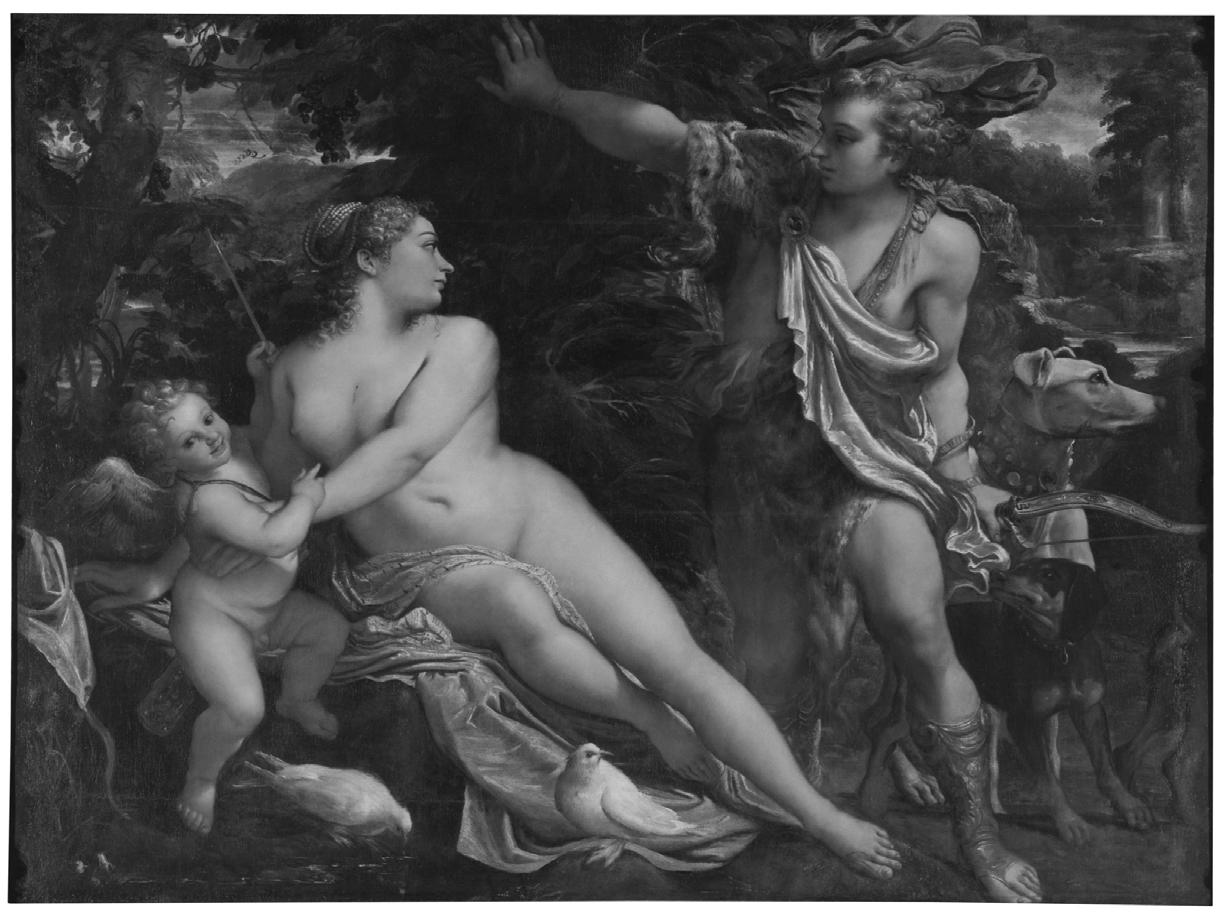
Dear Debby
“Igot together with my bf in year 13, and now we’re heading off to uni on opposite sides of the country. He said he would like to stay together and go long distance, but I’m not sure. We get along really well and I love him, but we haven’t been together that long, and I’m not sure if I want a long distance relationship. What if it gets in the way of our social lives? Should I do it? How?”
The Oxford Student’s stepby-step method to maintaining a long distance relationship:
1. Make sure to talk frankly to each other about the different obligations of your degrees and extracurriculars.
2. Look at the different term times of your prospective universities.
3. Create a large cardboard cutout of yourself to display in his accommodation.
4. Look into trains and buses that run between your universities.
5. Gather rose thorns, moonstone, and tonic
can feel like just another thing to squeeze into your to-do list between finding the library and defeating circuit laundry.
water and boil them at low heat for 15 minutes until bubbles form.
6. Drop in a lock of his hair. Make sure to try texting regularly.
7. Accept change and growth in your dynamic. For legal reasons that was a joke.

So you’re in love, swept off your feet, head over heels. Unfortunately, the C in UCAS does not stand for Cupid. Now you stand on the precipice of the dreaded Long Distance Relationship and below is a cavern of early nights in and awkwardly long FaceTimes. We’re being purposely cynical for effect, but these are the worries that rush the mind of many a young person entering university.
And hey, we get it. When you leave for university, especially a university like Oxford, you have maybe a million things to worry about: your workload, your academic performance, your freshers week, your liver, etc. From the least generous perspective, a relationship
Entering a long-distance relationship isn’t a decision to be taken lightly. It requires high levels of maturity and commitment. The truth is almost two-thirds of long-distance relationships don’t work out, and of that remaining one-third many still face problems. This does not mean that they are impossible, but it does mean that if you are not 100% certain that this is what you want, you might be signing yourself and your significant other up for a rocky path. The first thing to do is think about it realistically. It won’t all be watching movies together and romantic reunions at train stations. There will be a lot of admin in working out how to align your different schedules. There will be a lot of bailing on each other or just not being able to make different meetings. There will be a lot of watching your new friends and their partners go on dates and spend time in each other’s general vicinity. You might want to throw a book at them. If you can bring yourself to face these realities without turning away, you can say you’re willing to handle the commitment at its most lonely. No relationship is tested by how good the good times are. But, for every bad time, there will be good times too. You’ll meet up and call and text and send each other gifts. If you truly believe you can handle those lows for those highs, you’re already in a better place than most. Kudos.
Therapy’s expensive. Anonymous amateurs are free!
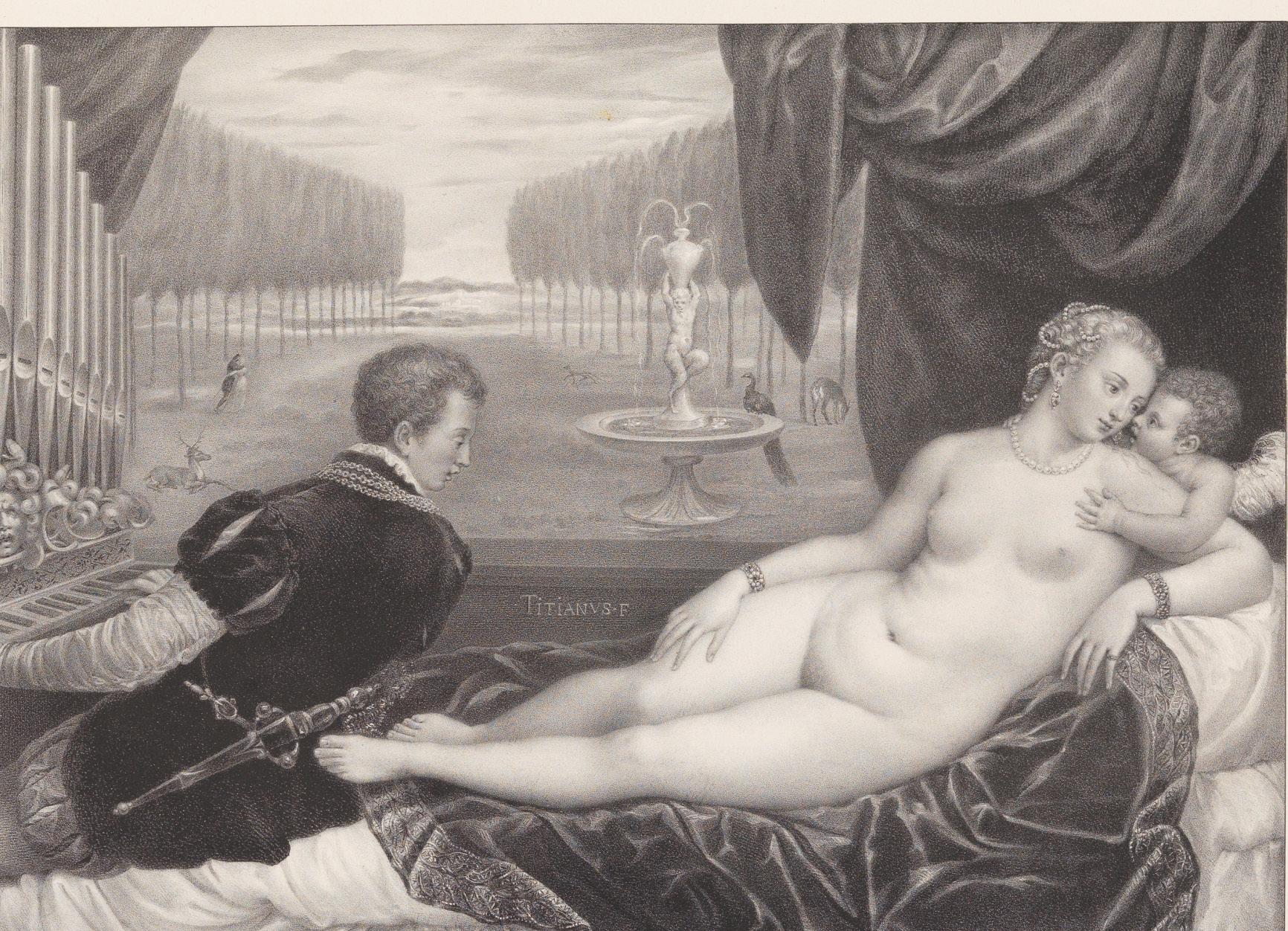
There is no one trick to making it work. There are, however, tips you should keep in mind if you want your relationship to outlive freshers week. You should enter it with some sort of endgame. We’re not suggesting you make a shared Pinterest board with your wedding venue and your future kids’ favourite sandwich toppings, but it’s worth having at least some sort of idea of where you
“ It won’t all be watching movies together and romantic reunions at train stations
want to be as a couple by the end of first year. Furthermore, you should have some level of commitment to contact; scheduled phone calls and visits are the bread and butter of that. Be understanding with each other, and be honest. You’re going to be very busy, and it’s ok to cancel or not be available sometimes. Find the positives in your
relationship: the times spent together, and even the times spent apart. The wonders of a long distance relationship do mean you get to develop yourself and you are fully in your own space at university. Lastly, do not force the chemistry if it isn’t there anymore. If you feel the spark die, do not just go through the motions. University is a time for a change, so don’t be afraid when this change does what it does best.
-
If you have come out of this harrowing line of thought thinking that this man is worth it all and more, go forth my little lovesick fool! Distance makes the heart grow fonder! But, if this has all given you some level of pause, save yourselves the pain, and think twice about that cardboard cutout.

sport@oxfordstudent.com
Deputy Editor: Johannes Riese
Section Editors: Zohaa Butt, Caitlin Clarke, Ned Preston
Correspondents: Haris Book, Gaspard Rouffin

The new labyrinthian format of the Champions League is not the only change UEFA have sought to implement, having also reduced the price cap on away tickets. Previously a cap of £59 had been in place from 2019, but this season it has been lowered to £50 and will be further reduced to £42 in 2025 following consultation between UEFA, Football Supporters Europe (FSE) and the European Club Association (ECA).
Following the fallout from the controversy surrounding Oasis tickets this appears as a major victory for fans who in recent years have been price gauged, only for their complaints and outrage to fall on deaf ears. UEFA president Aleksander Cerefin described the decision as an attempt to ensure ‘supporters who travel across Europe to follow their team are sup -
ported and recognised’. However, what seems like a noble crusade and the striking out against injustice from football’s governing body is hardly more than
“ The economic impact of these measures is marginal at best for fans and nonexistent for clubs
a vain attempt at feigning concern. The economic impact of these measures is marginal at best for fans and non-existent for clubs. The cap only applies to away tickets, which represent a slither of total stadium capacities. Any given team in Europe are practically guaranteed to sell out these tickets. Yet the FSE, who were involved in this decision, found that the

average away ticket price for the last 2 seasons has been £40, lower than the proposed cap for next season. Ultimately the cap reduction is inconsequential in the grander scheme of things. It’s not just the case that these measures appear to be more tame than they appear, but rather is the manufacturing of an issue entirely.
The reality of the situation is utterly detached from Cerefin’s lofty rhetoric of ‘reaf firming UEFA’s commitment to enhancing the match day expe rience for all fans’. The true empti ness of his words is re vealed when we consider what the cap doesn’t address: home tickets.
One of the premier opening fixtures of the postfacelift Champions League was billed as A.C. Milan vs Liverpool at the San Siro. Reminiscent of one of the truly intoxicating nights in Champions League history, the 2005 final, this is an iconic fixture, yet home fans were left disenfranchised. Tickets in the Secondo Rosso section of the stadium cost €139. To put this into context a ticket in the same section for their previous home game against Venezia cost €59. The extortionate nature of the tickets was reflected in stadium attendance with only 59,826 fans attending the Liverpool game, whereas 71,273 attended the Venezia game. European nights are
“ Fans have been robbed of a historic moment and their loyalty exploited
sacrament in football, but as UEFA and others seek to develop the game it is clear that fans are being left behind.

Following a 41 year absence Aston Villa find themselves competing in Europe’s premier competition this season. This should be a moment of pride and joy, a testament to the
unwavering support of the fans and confirmation of the progress the club has made in recent years. Yet it has been marred by the club’s decision to charge £85-97 for home tickets, which sparked staunch outrage amongst supporters. The club’s Supporters Trust stated the move would only serve to ‘alienate fans’. Fans have been robbed of a historic moment and their loyalty exploited. It is clear that UEFA’s invocation of the fans was merely an easy political bullseye, detracting attention from the creation of a de facto Super League. Ideas repudiated by fans in 2021 appear to be reaching their apogee. This new bloated labyrinth of a competition, Theseus would struggle to navigate, has stripped the Champions League of its glory. It once dealt in rarity and tension, its new obsession is producing as many fixtures as possible to maximise revenue. All this serves to worsen wealth disparity and further disenfranchise fans. Any illusions that the away ticket cap will somehow cleanse UEFA of their sins is simply absurd.
For fans these are tense times; the most common bond which unites them is their bitter distress. UEFA as a governing body is complicit, but remains in paramount denial of their responsibility. The away ticket cap is a shallow self-serving political gesture: an empty policy supported by empty rhetoric. All it achieves is the reaffirmation that within the modern game the greater fool is the fans.

Most diehard sports fans are devoted to their chosen team; a symbiotic relationship they carry with them to the grave. As an ardent follower of tennis – an individual sport – I will never experience that lifelong connection to a player, but my fanatical dedication to Rafael Nadal did, at times, reach cultish levels of admiration. When he announced his impending retirement at the Davis Cup in Malaga this November, I felt an eclectic mixture of sorrow and gratitude, but mostly wistfulness. A sense of longing for an earlier time, characterised by summer, the end of school, and Nadal hoisting La Coupe des Mousquetaires.
I first saw Nadal live when I was six, at the Stockholm Open, and have subsequently watched him at Wimble-
don, Roland Garros, and again this summer in Båstad – the last ATP tournament of his storied career. Sitting two metres from him and nearly getting showered by his sweat was surreal. His lasso-like forehand, Muhammad Ali-esque footwork, deft touch, and hook slice serve looked as sharp as ever. Yet it dawned on me that he was a step slower, his hair thinner, and his groundstrokes lacked that extra bite. His straightsets losses to Alexander Zverev at Roland Garros and Djokovic at the Olympics this year confirmed what I had noticed – he could no longer compete with the very best. The statistics speak for themselves: Nadal should go down as the second-greatest male player to ever play the game, after Djokovic. He finished year-end world number one five times, won 92
titles, and claimed 22 Grand Slam trophies, only bettered by Djokovic. His 14 Roland Garros titles and 112-4 record on the French clay are arguably the most impressive displays of dominance by an athlete at a single sporting event in history.
For all the accolades, Nadal will be most fondly remembered for his on-court persona. The ultimate competitive warrior, never relenting unless his body completely broke down, and even then, he might still continue (see his quarterfinal against Taylor Fritz at Wimbledon 2022). His discipline and refusal to give in to his inner demons or express rage by throwing his racquet are almost inhuman. His quirky match rituals, from perfectly aligning his water bottles at every changeover to always adjusting his shorts before serving, amused the
crowds. His sportsmanship is enviable, always applauding his opponents after a brilliant shot and rushing to their aid if they took a fall.
But for me, Nadal’s off-court traits are why I proudly call myself a fan. His humbleness and kindness are remarkable. No matter how much he won, he would never underestimate an opponent in a press conference before a match. I’ve heard countless stories of how, even when he lost in a tournament, he would go to the backroom offices and thank as many of the tournament organisers and volunteers as he could. His post-career efforts will presumably focus on his academy in his native Mallorca, a perfect representation that he never forgot his roots, and that his defining humility remained intact, regardless of the heights he reached.

Autumn has come to Paris. Earlier this week, I was walking through the Jardin du Luxembourg – a public garden which has rapidly become one of my favourite places in the city – when I began to no-
tice the change of the seasons. I had first visited the garden just after moving to France for my year abroad, at the end of August when the final swell of summer brought a heatwave. But now, in October, the air was crisper, and the leaves
had turned to mustard yellow and burnished red. Standing in the same place as just over a month before, I took a photo over the same view: the statue of L’Acteur grec in the foreground, aligned with the Pantheon in
Sinner 2, Djokovic 0
Jannik Sinner beat Novak Djokovic at the Shanghai Masters to win his seventh title in a whirlwind year, denying Djokovic a 100th career title.

England won against a limited Finland game in a victory that overshadowed an embarrassing earlier defeat to Greece. Look out for Trent Alexander-Arnold’s goal on the replay. England 3, Finland 1

by Sophie Harrison
the background. Comparing the photos, I could capture how the colours had transformed. Already, the passage of time is visible; it’s somehow my second month in Paris. These ripening colours reminded me, perhaps tenuously, of a recent trip to the Musée d’Orsay. Paris’ famous railway-station-turned-museum houses the world’s largest impressionist art collection, including Monet’s Rouen cathedral series. Ranging from bright sunlight to grey shadow, this series epitomises the artist’s habit of reproducing the same scene in different shades. Paris itself, like these images, takes on a different mood depending on the light and season.
In my second month, the city’s charm remains far from having worn off. It’s easy to be enamoured with la ville de l’amour, even if this means you are probably seeing la vie
en rose. Living in such a large, cosmopolitan city brings a sense of anonymity, but this can be liberating rather than isolating. In some cases, it can even lead to serendipitous encounters with strangers. Here’s an example. Recently, I met a friend for coffee on Rue Mouffetard – a street lined with cafes which doubles as the favourite haunt of students from my exchange university, the École Normale Supérieure. Since my friend and I both study in the UK, it would have been all too easy to slip into English, but we decided to make an effort to speak in French. At some point in our conversation – probably when I managed to butcher the future tense conjugation of the verb envoyer (note to self: j’enverrai) – the man on the table beside us caught onto the fact that we weren’t, in fact, French.
Read the full postcard on oxfordstudent.com
asks whether a club that increasingly has been a punchline is on its way back to football dominance.
Recently I was sitting in the pub watching football with the same friend I always do. Adorned in his Chelsea regalia, he made a statement that caught me by surprise. A statement I heard him make at the tail end of last season just a month before they sacked their manager, but this time felt different. It didn’t feel as if it was a statement born of several pints of Guinness or the ecstasy of a marginal victory. It didn’t even bear resemblance to the arrogance of this would be Chelsea hooligan. He simply stated in unequivocal terms:
‘We are back’.
For the last two years it has felt as if Clearlake Capital,
Todd Boehly and Chelsea have been the punchline of every joke in football. The idiosyncratic criticism of the team has been the lack of any form of coherence and cohesion, producing an inability to truly create any meaningful run of form. But now after seven games of the Premier League season they find themselves in 4th place, merely 3 points behind Manchester City and Arsenal and ahead of the likes of Aston Villa and Brighton. Enzo Maresca has instituted a 4-3-3 formation with 2 central midfielders in the half spaces at staggered depths. His inverting of either fullback, depending on who is fit, has created a system free
Crossword by Lloyd Dore-Green

1. Shows off her rear; Venus lacking in that regard [5]
6. Most survive being unwell –rabies, perhaps [5]
9. Character in first Austen novel [3]
10. “Don’t start! Never nag crazed vigilante!” [7]
11. Appliance which rotates
of the chaos Chelsea so often personified as no longer is Caicedo left isolated to defend huge swathes of space during counter-attacks. Chel-
“
Enzo Maresca has created a system free of the chaos Chelsea so often personified
sea’s structure under Maresca has allowed them to attack with 5 players going forward able to find pockets of space while able to defend effectively against the counter. Their
current league standing is a testament to the success the system is having and Maresca’s ability given it is only his first season managing in the top flight with his only previous managerial experience being a season at the helm of Leicster in the Championship. The standout player, not just for Chelsea but arguably of the season, has been Cole Palmer. Since leaving Man City, over the last two years Palmer has etched his name into stone. Over that period he produced the second most goal contributions of any player in Europe’s top 5 leagues. He has become a household name and the true saving grace of Chelsea in their darkest hour. Against Brighton
he even became the first player in Premier League history to score four goals in the first half. Palmer is simply world class, he is inevitable, capable of starting for any team in the world, and as absurd as it may sound even the argument that he is currently the best player in the world possesses some merit. Yet somehow he failed to get a start for England at the Euros?
But therein lies a potential problem: Chelsea are yet to shake the ‘Cole Palmer FC’ moniker. Having a player of intrinsic importance and value to your team is natural, yet the team must be able to function.
frenziedly [7]
12. and 27. Novel rewritten after this semicolon [2, 6, 2, 4, 4]
14. Good answer [4]
15. Sip vodka, perhaps, with Bettie Page [3]
17. Reasonable to make things even after initially abetting disparities [8]
20. Vile type of cider and beer
unfinished [6]
22. Craving for money [3]
24. Relative outburst of relief after new beginning here at last [6]
27. See 12.
29. Without a place to lay down [3]
31. Boil water, stir and, finally, remove camomile [4]
32. Workaholic Americans go crazy without their money [10]
35. A very quiet way to praisedo quite the opposite! [7]
36. Underwear needed for Bach transcription? [1-6]
37. Woman who came first is oddly envied [3]
38. To flirt: greet then guess weight? [3,2]
39. Waste time – twenty-four hours – getting to grips with fifty-fifty [5]
DOWN
1. Religious leader brought up around Italy’s capital city [5]
2. Manage to put poetry into Old English [7]
3. Manipulatively usingtears; they seal the deal [10]
4. Horror movie by Wes An-
derson with absurd side overlooked [8]
5. Stud in jacuzzi, topless, knocked back last of gin [6]
6. Tube through Lambeth North [4]
7. Eat humble pie about pie (or something like that) [7]
8. Parade through street with pothole [5]
13. Fail exam, then lie [3]
16. In favour of pamphlet editor rambling [10]
18. It has twenty-one spots? Five hundred and one? Between two and three? [3]
19. It may shock you: far-right candidate supported by 20% of electorate [3]

21. This setter’s after a raison-d’être [3]
23. Refusal to yearn for era cut short and now bygone [2,6]
25. Fence soldier with spoon, perhaps [7]
26. Make solution small [3]
28. First (without second) in a list one curated [7]
30. Dealer hanging up revolutionary paintings [6]
31. Half-hearted Christmas decoration leads to fury [5]
33. Secretive spy agency partially overheard [5]
34. Make peel-less banana bread [4]
Read the full article on oxfordstudent.com Sudoku - Hard
